- Research and Teaching
- Wissenschaftliche Graduierung
- PhD, MD/PhD and DMD/PhD

Earning the doctorate degree PhD, MD/PhD or DMD/PhD
With the introduction of the PhD, MD/PhD and DMD/PhD programmes, University Medicine Greifswald offers high-achieving graduates of medicine, dentistry, and natural and life sciences the opportunity to conduct a structured doctorate with a focus on research, and thus excellent prospects for their further professional career and the continuation of an academic career, especially in an international context.
The most important information at a glance:
- The basis of the doctorate is the publication of your own research results in at least 3 original scientific publications (cumulative thesis)
- The period between requesting admission to the doctoral procedure and the submission of the thesis is usually 3 years
- Completion of an accompanying curriculum amounting to 24 ECTS (courses, participation in congresses, continuing education)
- Supervision of the research work by a thesis committee and conclusion of a supervision agreement
Doctoral Board PhD, MD/PhD, DMD/PhD Chair: Prof. Elke Krüger
Upcoming dates:
- August: Summer break
- 17 September 2024
- 8 October 2024
- 19 November 2024
- 10 December 2024
- 21 January 2025
The doctoral board usually meets on the 3rd Tuesday of the month.
Documents and applications are to be handed in 14 days in advance
PLEASE NOTE: The accompanying curriculum has been re-structured and now comprises: a compulsory part which is attended by all doctoral students, an elective part with general and subject-specific options, as well as the possibility of crediting active congress participation (poster presentation or talk). More information can be found below. The structured curriculum is compulsory for all doctoral students admitted from April 2023.
Before admission
The following requirements apply for admission to the doctoral programmes:
Doctor of Philosophy (PhD)
- Master's degree or equivalent university degree in a natural or life science subject other than human medicine or dentistry (min. 300 credit points)
- Overall grade of "good" or better (better than 2.5)
Medical Doctor/Doctor of Philosophy (MD/PhD)
- Passed the medical examination (state examination)
- Overall grade of "good" or better
Doctor of Medical Dentistry/Doctor of Philosophy (DMD/PhD)
- Passed the dental examination (state examination)
Preliminary review of admission requirements
If you are unsure whether you meet the admission requirements for the PhD, MD/PhD or DMD/PhD programme (e.g. because you are planning to change from Dr. med. to MD/PhD and have already started your research work), there is the possibility of a non-binding preliminary review by the Doctoral Board. This does not formally constitute a request for admission according to § 4 of the Doctoral Regulations.
- Cover letter (approx. 1 page) in which you outline your research project and, if applicable, any work you have already done
- Curriculum vitae with information about your academic career
- Degree certificate(s) and transcript of records from the relevant degree course
The first step in preparing your doctorate is to find a supervisor in the desired subject area. The supervisor must be a habilitated member of University Medicine Greifswald, i.e. professor or associate professor (apl. Professor, Privatdozent (PD)). Co-opted professors from other faculties of Greifswald University can also supervise doctorates at UMG.
Your doctoral subject corresponds to the designation of the chair of your supervisor, or the chair your supervisor belongs to.
Your doctorate will later be supervised by an individual thesis committee , which is appointed by the doctoral board as part of the admission process. In addition to your supervisor, this committee includes two other members; also habilitated; one UMG-internal and one UMG-external person. This way, expertise from different areas that are relevant to your research project is combined. When you complete your doctorate, the thesis committee is responsible for conducting and grading the doctoral defense.
Degrees obtained abroad must be checked for equivalence to the above-mentioned admission requirements before you can be admitted to the doctoral programme. Please have your certificates and transcripts of records checked by the ZAB (Central Office for Foreign Education) .
Please note: The ZAB is not open to the public. It is not possible to hand in or collect documents on site. Information can only be obtained by e-mail and telephone.
Tel.: +49 228 501-664 Mon, Tue, Thu 9:00-12:00 and 14:00-15:00, Fri 9:00-12:00
Address for items sent by post: Zentralstelle für ausländisches Bildungswesen Postfach 2240 53012 Bonn Deutschland
Address for shipments with a courier service: Zentralstelle für ausländisches Bildungswesen Graurheindorfer Straße 157 53117 Bonn Deutschland
Please submit the ZAB's evaluation along with your degree certificates, transcripts of records and further application documents (see Application for admission) to the Dean's office.
To apply for admission to the doctoral programme, you will prepare a detailed work plan (exposé) of your research project together with your supervisor, including the planned timeline. The exposé should consist of 3-4 pages and follow the prescribed structure (see below, Admission to the doctoral procedure ).
In addition, you and your supervisor will compile a list of the courses that you will attend during the qualification phase (for specifications, see Accompanying curriculum below). Apart from the compulsory part, you will select further courses that complement or deepen skills and knowledge relevant to your research project. Courses that you attended as part of your academic studies (e.g. Masters') cannot be credited or taken again. German courses cannot be credited either.
The curriculum is generally begun after admission to the doctoral programme. The crediting of courses that you have previously taken is possible in exceptional cases; max. 12 months retrospectively. The decision lies with the doctoral board. For examination, please fill out the form Request for recognition of lectures already completed and submit it with your application for admission.
To support the administration of doctoral procedures, an internal database is used at University Medicine Greifswald, the Research Information System (RIS, German: Forschungsinformationssystem / FIS ).
After entering and saving your data (address, degree, doctoral topic, etc.), you can generate the application form for admission to the doctoral procedure as well as the confirmation of acceptance as a doctoral student (required for enrolment at the University) by klicking the respective buttons at the top of the data sheet.
Admission to the doctoral procedure
- Request for Admission to the Doctoral Procedure PhD, MD/PhD or DMD/PhD (application form with handwritten signature; to be generated in the RIS )
- Curriculum vitae with information about your academic career (with handwritten signature)
- Certified copies of all university degree certificates (degrees obtained abroad must be checked in advance, see above, and submitted in the original language and as a certified translation in German or English); single copies of transcripts of records (with German or English translation if necessary)
- Agreement to supervise the doctoral procedure, including suggestions for thesis committee members (signed by the supervisor, see Templates for admission to the doctoral procedure )
- Scientific work plan of 3-4 pages (see Templates for admission to the doctoral procedure )
Preliminary plan of accompanying curriculum, according to the requirements for compulsory and elective parts (co-ordinated with the supervisor, see Templates for admission to the doctoral procedure )
If applicable, request for recognition of a semester off completed for research purposes as part of the degree course (informal; proof of completion of the semester off must be provided)
- If applicable, Request for recognition of lectures already completed
- Confirmation of Acceptance as Doctoral Candidate for enrolement as a doctoral student (after admission to be handed in at the Students’ Registration Office, Rubenowstraße 2, see Doctoral website University of Greifswald )
You will be informed in writing about the admission to the doctoral program or the rejection of your application.
Please sign the supervision agreement (Betreuungsvereinbarung) with the members of your thesis committee within 6 weeks of admission and submit a copy (scan by e-mail) to the Dean's Office. The supervision agreement should ensure that you receive the best possible supervision during your qualification phase. Here, for example, you specify the frequency of meetings with the thesis committee and undertake to exchange information and comply with the principles of good scientific practice.
You should organise the first meeting with your thesis committee soon after admission in order to present your research exposé and the planned curriculum to all members.
Upon admission to the doctoral programme, you are required to register for doctoral studies at the University of Greifswald for the duration of your doctorate (Students’ Registration Office, Rubenowstr. 2). Please refer to the university's doctoral website (ger) for documents to be submitted and contact details.
Please hand in the form Confirmation of Acceptance as Doctoral Candidate according to § 9 with your request for admission to the doctoral procedure. You will receive it back signed by the Dean, along with the confirmation of your admission.
Qualification phase (ca. 3 years)
The qualification phase usually lasts three years and begins with admission to the doctoral procedure. During the qualification phase, you will conduct the scientific research on which your dissertation thesis is based. You will first publish your research results in peer-reviewed journals before writing your dissertation on the basis of at least three original publications.
In addition, you will acquire a sound understanding of scientific problems, in-depth specialist knowledge and the ability to work in an interdisciplinary manner. On the one hand, you will do this in exchange with your colleagues, research group leaders, other doctoral researchers and your thesis committee. On the other hand, you will acquire specific knowledge and skills that will advance you and your research project within the framework of the accompanying curriculum.
Regulations on qualitative and quantitative requirements for publications (Appendix 3 to the PhD, MD/PhD, DMD/PhD Doctoral Regulations)
- In the three required original publications of the cumulative thesis, the doctoral candidate must have acted as first author at least once. Among the three original publications, there may be in exceptional cases one paper that has been submitted for publication at the opening of the doctoral procedure but has not yet been finally accepted for publication.
- The journals to which the papers have been published or accepted for publication or submitted should be able to be assigned subject-specifically according to the criteria of a recognised bibliographic database such as Web of Science.
- The cover text ("Manteltext") within the thesis should be at least 6,000 and at most 12,000 words long (approx. 20-40 pages) excluding the bibliography, and should be structured as follows: short Summary of one page both in German and English, Introduction, Methods and Materials, Results, Discussion. The cover text serves to link the publications in terms of content (embedding them in an overarching context) and to discuss issues that go beyond the topics dealt with in the publications. For example, methodological principles, calculations or evaluations can be described in more detail, and further results or problems that have arisen after the publications were published can be addressed.
- The doctoral candidate's share in the publications must be documented (when submitting the thesis) by a written declaration from the doctoral candidate and the supervisor to the doctoral board. In the case of publications in which the doctoral candidate is the first author, he/she must have played a predominant role in the planning of the scientific work, the data collection and/or analysis, the evaluation and the interpretation of the results. In the case of publications for which the doctoral candidate is co-author, he/she must have played a significant role in the planning of the scientific work, the data collection, the evaluation and the interpretation.
- If two persons share a first authorship , this can be counted as a full first authorship upon justified application by the thesis committee. The application is decided by the doctoral board and should be submitted before the thesis is submitted. In the case of three or more first authorships for one article, such a request is excluded.
The thesis committee monitors the progress of the doctorate and is later responsible for organising and grading the doctoral colloquium (see also information sheet for members of a thesis committee ).
You arrange regular meetings (possibly via video conference) with your thesis committee to report on the status of your doctorate (research, curriculum, publications), to clarify questions and any problems, and to receive important feedback. You have jointly agreed on the frequency of your meetings in the supervision agreement (usually 1-3 meetings per year) .
To prepare and record the meetings, please use the template for the
- Progress Report
Please note that the progress report is to be completed by you in advance and sent to the members of the thesis committee by e-mail two weeks before the meeting. The minutes of the meeting will be taken by your supervisor.
Please keep your data in the doctoral module of the RIS up to date until you have completed your doctorate (address/contact data, topic of the dissertation, ...).
After admission, you will also find an extension to your input mask, see screenshot. Here, please continuously enter the courses that you have attended as part of the curriculum (by klicking "new entry"). After submitting your transcripts to the Dean's Office, you will be shown the total ECTS you have earned.
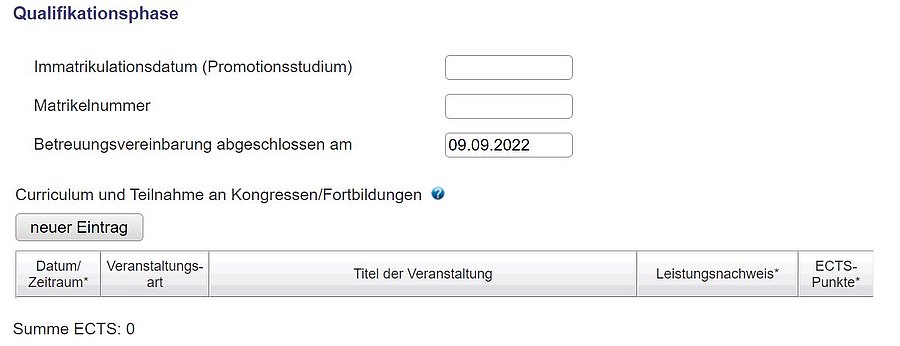
Accompanying curriculum
The accompanying curriculum is divided into three parts: complusory courses (4 ECTS), elective courses with interdisciplinary and subject-specific components (min. 5 ECTS), and the possibility of crediting active congress participation (max. 15 ECTS). A total of at least 24 ECTS must be achieved (§ 5 Para. 4 PromO).
Note: The structured curriculum described here is mandatory for all admissions from April 2023. Doctoral candidates who were admitted before this date will complete an individual curriculum (as confirmed by the doctoral board with admission to the program).
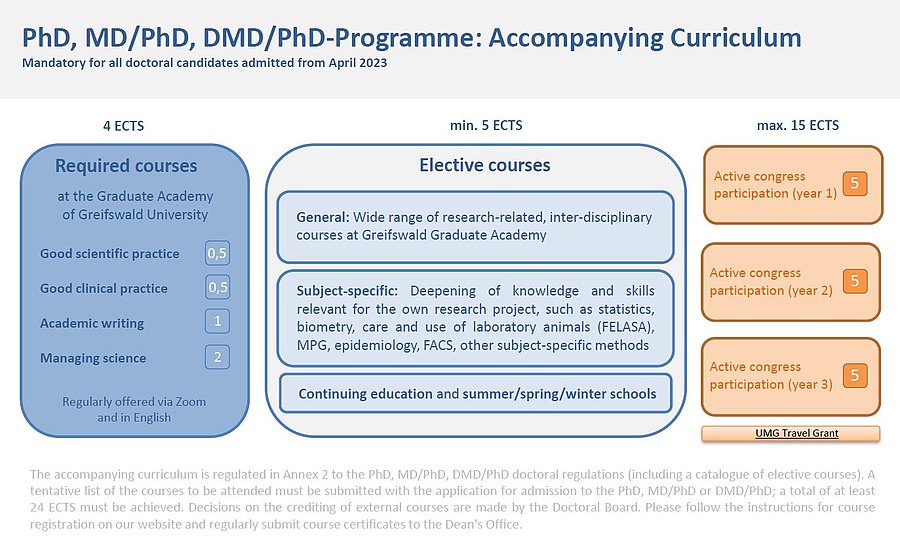
Thesis Submission
The dissertation should summarise at least three original publications with related content that have been published in renowned journals (cumulative dissertation).
The reference to University Medicine Greifswald must be recognisable in all publications and the thesis must relate to a subject area according to Appendix 1 to the PhD doctoral regulations. For further information on requirements for the publications and first- or co-authorship, see Appendix 3.
A jacket text of 20-40 pages links the publications in terms of content and provides additional insights or outlooks into the topic. When preparing your dissertation, please refer to
- Notes on thesis structure and submission
- Templates (thesis submission)
You can request that the doctoral procedure be initiated after you have completed the accompanying curriculum (approximately 3 years after admission). Please send the following documents to the Dean’s Office:
- Request for Initiating the Doctoral Procedure (application form with handwritten signature; should be completed in RIS)
- 3 printed and bound copies of the thesis including the original publications
- Proof of lectures and congresses/training attended (see accompanying curriculum/qualification phase)
- Official certificate of good conduct (document type 0 = official) not older than 3 months when submitting the doctoral thesis to be addressed directly to: Dekanat, Fleischmannstraße 8, 17475 Greifswald
- If applicable, declaration of shares in publications and shared lead authorship (with handwritten signature)
Applicants will be informed in writing that the doctoral procedure has been initiated.
After the doctoral procedure has been initiated, an internal first assessment and an external second assessment are requested. If the thesis is evaluated with at least "rite" by both assessors, the oral examination (doctoral colloquium) takes place.
The doctoral colloquium is held before the thesis committee and is comprised of a presentation (max. 30 minutes) and a scientific discussion (30-90 minutes). The language of the presentation is German or English.
The date is set by the thesis committee and is announced to the doctoral candidates at least 14 days in advance. The colloquium is open to the public and will be announced to the members of the faculty.
Completion of the doctoral procedure
After passing the doctoral colloquium, the thesis must be published in an unchanged and complete form according to § 12 PromO PhD (4 durable bound copies and a pdf file). The copies are to be submitted to the University Library, Felix-Hausdorff-Str. 10 (Ms. Franzus, Tel. 03834 420 1519 (printed copies) and Ms. Waha, Tel. 03834 420 1553 (electornic version)) . For more information, please visit the
Central University Library Website .
The Dean's Office will be notified of the thesis submission by the University Library.
After submitting the required copies to the University Library, a confirmation of successful completion of the doctoral procedure is issued. This entitles the doctoral candidate to use the doctoral title - for a limited period of time until the original certificate is presented.
The award of the doctoral certificates takes place during a festive ceremony in May/June each year at St. Nikolai church (Domstr. 54, Greifswald, "Verleihung der akademischen Grade" ). Doctoral candidates will receive an invitation and are kindly asked to confirm by e-mail whether or not they will attend the ceremony. If participation is not possible or not desired, the certificates will be sent by post.
Mathilda Guerin Universitätsmedizin Greifswald Dekanat/Wissenschaftlicher Vorstand Fleischmannstr. 8 17475 Greifswald
Sprache wechseln
Change language, hell-/dunkelmodus, light mode / dark mode.
Info und Anleitung Info and instruction

- Alumni Relations
- Information for employees
- Guest Students
- Entrepreneurs
- International people
- Instructors and Students
- Early Career Researchers
- Portal der Verwaltung Portal of the Administration
Application portal for study places
- Uni-assist: for international applicants
Dr.med/MD-PhD degrees
Doctoral Office
Saskia Rummel
+49 (0)441 798-3447
V03 M-3-323
The next meetings of the Doctorate Committee
Chair: Prof. Dr. Ivan Milenkovic
Meetings from 6:00 p.m. to 8:00 p.m.
All applications must be submitted to the Doctoral Office of School VI at least twelve days before the meeting as a hard copy and a digital version consisting of a single PDF file. Incomplete applications cannot be considered. The execution of the resolution after the meeting lasts one week .
Doctoral Committee and appointments
Useful links
International Affairs
Good Academic Practice
Library and Information System
Medical Ethics Committee (in German)
Bi omedicum - Biomedical Centre of Competence
University terms German-English glossary
Translation coordination
Learning Workshops of the ZSKB
Mixed-Methods Laboratory
The School of Medicine and Health Sciences awards the Doctor of Medicine (Dr. med.) and Medical Doctor - Doctor of Philosophy (MD-Ph.D.) degrees for in-depth, independent scientific achievements in the field of medical sciences in accordance with the Doctoral Degree Regulations dated 12 October 2021 and the First Amendment dated 21 March 2022.
If you have any questions regarding the procedure or the submission of application documents, etc., please contact the Doctoral Office of School VI Medicine and Health Sciences.
What are the required assignments?
The following assignments must be completed: - a written doctoral thesis (dissertation), - an oral examination (disputation), - successful participation in the accompanying curriculum (Dr. med.) or in the structured doctoral program (MD-Ph.D.), - publication of the dissertation
Supervision, supervision committee, supervision agreement, logbook
The doctoral regulations regulate in § 7 para. 1 which persons can act as a supervisor. The supervisor accompanies the doctoral research and supports the doctoral procedure by a votum informativum. In addition, a doctoral committee is usually appointed, for which the doctoral candidate can submit suggestions.
A supervision agreement regulates the relationship between the doctoral candidate and the supervisor, as well as with the supervision committee, and regulates further aspects of the implementation and supervision of the doctoral project.
- Form Supervision Agreement Dr. med.
- Form Supervision Agreement MD-Ph.D.
During the doctoral studies, a logbook documenting various milestones of your doctoral project must be kept and submitted with the submission of the dissertation.
- Logbook form [in preparation; please contact the doctoral office for the time being].
In case of questions, problems or difficulties in connection with the doctorate, there is always the possibility to contact the doctoral committee or the ombudsperson responsible for the School of Medicine and Health Sciences. Of course, the confidential treatment of the request or query is warranted.
Acceptance as a doctoral candidate, admission to doctoral studies and enrollment
Prior to the start of the doctoral project, the first step is the acceptance as a doctoral candidate in accordance with § 7 of the doctoral regulations by concluding the supervision agreement, which must be countersigned by the chairman of the doctoral committee.
In accordance with § 8a of the doctoral regulations, the admission to the doctoral program generally takes place at the same time. Under certain conditions (see Appendix 1 of the Doctoral Regulations "Procedural Regulations Dr. med."), the acceptance as a Dr.med. doctoral candidate can already take place before the completion of the Medicine degree programme, with the passing of the medical examination. In any case, the application for admission to the doctoral program as a doctoral candidate is made no later than one year after acceptance.
Please use the forms below:
- Form "Acceptance as a doctoral candidate"
- Form "Application for admission as a doctoral candidate"
Applications for acceptance as a doctoral candidate or for the admission to doctoral studies are to be addressed to the Doctoral Committee Dr.med./MD-Ph.D..
The Doctoral Committee Dr. med./MD-Ph.D. decides on the admission to the doctoral program as well as in all other procedural matters in its meetings.
All applications must be submitted in writing to the doctoral committee. The necessary documents must be submitted in their entirety, both in paper and electronic form, to the Doctoral Office no later than twelve days before the meeting of the doctoral committee.
Since an ethics vote is required for most medical doctoral projects, you should contact the Medical Ethics Committee of the University of Oldenburg before starting the research. For these inquiries, please use the form for the assessment of the duty of consultation by the ethics committee.
Form for the assessment of the duty to consult
After admission, doctoral students should enroll as doctoral students at the earliest possible date. Further information can be found on the homepage of the Admissions Office .
Participation in the accompanying curriculum (Dr. med.) or in the structured doctoral programme (MD-Ph.D.)
Within the framework of the doctorate for the degree Dr. med., successful participation in the accompanying curriculum for the acquisition of scientific skills amounting to a total of 6 credit points (KP) is required. Through this accompanying curriculum, doctoral students acquire subject and methodological skills, as well as practical skills, which should enable them to successfully complete their doctorate and enter a science-based occupation. For further information on the accompanying curriculum, please refer to Annex 1 of the doctoral regulations and the following information sheet:
- Informations accompanying curriculum 6 credit points
Please use the following routing slip as proof of successful participation in the accompanying curriculum:
- Routing sheet
The proof of participation in the accompanying curriculum will be submitted together with the application documents when the doctoral procedure is initiated (see § 10 para. 2 PromO). The doctoral committee decides on the recognition of the achievements.
Twice a year, during the May and November meetings, you have the opportunity to submit your course planning in advance to the doctoral committee for review. MD-Ph.D.
Within the framework of the doctorate for the degree MD-Ph.D., successful participation in the structured doctoral programme "Medicine and Health Sciences" at the Graduate School of Natural Sciences, Medicine and Technology, which amounts to 30 CP is required, among other things. Further information on the contents, registration modalities, etc. can be found on the OLTECH homepage. OLTECH decides on the recognition of the work performed in consultation with the coordination of the doctoral programme. More information can be found on the OLTECH homepage.
Contact persons for questions regarding the content of the structured doctoral program "Medicine and Health Sciences" are
Nina Löchte
Karine von Bochmann
Writing a dissertation
The dissertation should be written in German or in English. Dissertations in German must also include an English abstract and dissertations in English, a German abstract. The guidelines of good academic practice of the University of Oldenburg always apply to the writing of the dissertation.
The dissertation can be written in monographic form or can be publication-based. Details are regulated in § 9 of the doctoral regulations.
When being submitted, the dissertation must include the title page from Appendix 3 of the doctoral regulations.
Further instructions for writing the dissertation:
- Recommendations for writing the dissertation/Guidelines for the Dissertation
- Recommendations for citations (collection of examples according to the International Committee of Medical Journal Editors)
Submission of the dissertation and request for initiation
The submission of the dissertation and the submission of an application to initiate the doctoral procedure is generally possible at the earliest one year and at the latest five years after admission. At the request of the doctoral candidate, these deadlines may be changed by the Doctoral Committee by a reasonable period of time. If the application to initiate the doctoral procedure is not submitted within the deadline, admission is deemed to have been withdrawn (Section 10 (1) of the Doctoral Degree Regulations).
After completion of the dissertation, the doctoral candidate submits the application to initiate the doctoral procedure in accordance with § 10 of the Doctoral Degree Regulations.
- Antrag auf Einleitung eines Promotionsverfahrens / Application for opening of a doctoral procedure
Further documents to be submitted are (see §10, para. 2 of the Doctoral Degree Regulations)
- a declaration in lieu of an oath that the applicant has "completed the dissertation independently and without any unauthorized help from third parties, i.e. without using any aids other than those specified and has identified the ideas taken directly or indirectly from external sources as such" (as part of the dissertation, see § 10, para. 2b)
- a declaration that the content of the dissertation has not already been used predominantly for a Bachelor's, Master's, diploma or similar examination (as part of the dissertation, see § 10 para. 2c)
- proof of the successful proof of successful participation in the accompanying curriculum (Dr. med.) or successful completion of the structured doctoral program (MD-Ph.D.; see § 10 para. 2d)
- proof that a logbook has been kept (see § 10 para. 2e)
- if applicable, an updated curriculum vitae in German with information on the educational background, supplemented by a list of any scientific publications (see § 10 para. 2f)
- a declaration as to whether clinical trials on humans, epidemiological studies with personal data or studies on human material with personal reference (ethics committee), experiments with genetically modified organisms (Genetic Engineering Act) or experiments on vertebrates (laboratory animal approval) have been carried out. If not already granted at the time of admission, a copy of the approval from the competent authority must be submitted to the doctoral committee in the relevant case (see § 10 para. 2g)
- if applicable, name proposals for a reviewer in accordance with § 6 (see § 10 para. 2h, e.g. possible via form Application for the initiation of a doctoral procedure) a declaration that the regulations on good scientific practice at the Carl von Ossietzky University of Oldenburg have been followed (see Section 10 (2i); see also form Application to initiate a doctoral procedure, point 4)
- if necessary, proof of enrolment as a doctoral student in accordance with § 8a para. 6 (see § 10 para. 2j) a declaration that no mediation or counseling services (doctoral counseling) have been used in connection with the doctoral project (see § 10 para. 2k; see also form Application for the initiation of a doctoral procedure, point 5)
- in the case of a joint doctoral procedure or a bi-national doctorate pursuant to § 3 para. 2, confirmation from the cooperation partner that the doctoral project will be carried out (see § 10 para. 2l).
The application to initiate the doctoral procedure must be submitted in writing to the Doctoral Committee. The necessary documents must be submitted in full to the Doctoral Office in both paper and electronic form no later than twelve days before the meeting of the Doctoral Committee.
Assessment and consultation of the dissertation
The doctoral committee opens the doctoral procedure by appointing two reviewers to assess the dissertation. As a rule, the assessors belong to different disciplines and together cover the breadth of the dissertation. Further details on the assessors are regulated in § 6 of the doctoral regulations.
Thesis defence
After the expiration of the deadline and upon acceptance of the dissertation, the thesis defence takes place. The doctoral committee appoints an examination board to conduct the defence. Further information on the composition of the examination board is contained in § 5 of the doctoral regulations.
In due time, the doctoral candidate is informed by the Doctoral Office about the determined composition of the examination board and independently take over the organization of the thesis defence, i.e. the scheduling in coordination with the examiners as well as the reservation of a room. As soon as time and place are fixed, the Doctoral Office must be informed.
If the doctoral candidate and the members of the examination board schedule the time of the defence while the dissertation and the assessments are made available for consultation, it is recommended to ensure that there is an appropriate time gap between the expected end of the consultation time and the planned date of the disputation.
Evaluation of the doctoral performance, completion of the doctorate
Following the defence, the doctoral committee determines how the doctoral performance of the doctoral candidate is to be evaluated overall (see § 13 of the doctoral regulations).
The doctorate is concluded with the publication of the dissertation according to § 14 of the doctoral regulations.
Publication of the dissertation
Within one year after the thesis defence, the doctoral candidate must make the dissertation available to the scientific public in an appropriate manner. The publication takes place via the Library and Information system of the Carl von Ossietzky University Oldenburg . Further details on publication are regulated by § 14 of the doctoral regulations. For the printed copies, the title page according to the sample in Appendix 3 of the doctoral regulations is to be used.
Completion of the doctorate
The doctorate is completed with the award of the doctoral certificate and the doctoral candidate is entitled to use the degree of doctor (see § 15 of the doctoral regulations).
Transitional provisions for doctoral students already accepted before 12 October 2021
Pursuant to § 23 of the doctoral regulations, doctoral candidates who, at the time this new version of the doctoral regulations (13.10.2021) came into effect, had already been accepted as doctoral candidate in accordance with §1 para. 6 of the previous doctoral regulations of School VI Medicine and Health Sciences of the Carl von Ossietzky University Oldenburg for the award of the degrees "Doktor der Medizin (Dr. med.)" and "Medical Doctor - Doctor of Philosophy (MD-Ph.D.)" (version of 08.03.2014) with the doctoral committee and had received a confirmation of the doctoral committee, and who apply for the admission to the doctoral procedure according to § 10 within five years after the entry into force of these regulations (cut-off date 13.10.2026) or who have already applied before the regulations came into effect can apply for the previously valid doctoral regulations of the School VI Medicine and Health Sciences of the Carl von Ossietzky University Oldenburg for the award of the degrees "Doctor of Medicine (Dr. med.)" and "Medical Doctor - Doctor of Philosophy (MD-Ph. D.)" in the version of 08.03.2014 ( Amtliche Mitteilungen / 33. Jahrgang - 1/2014, pp. 135-146 ) to be applied.
Doctoral students affected by these transitional regulations can download the form for admission according to the doctoral regulations in the version of 08.03.20214 here.

Links and Functions
- www.en.lmu.de
- Medical Faculty
Breadcrumb Navigation
- Doctoral Degrees
Ph.D. Medical Research
Main navigation.
- Dr. med. dent.
- Dr. rer. biol. hum.
- Dr. rer. nat.
- Clinical Pharmacology
- Information, FAQs and Downloads
- Plagiarism Check
- Publications
- Doctoral projects
- International Students
- Funding possibilities & awards
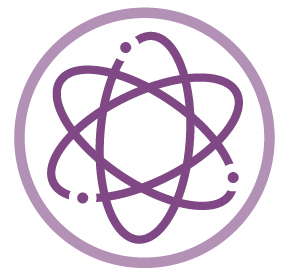
The LMU Medical Faculty has offered the Ph.D. Medical Research , a structured doctoral program of at least three years, for several years now. The Ph.D. is a research and training program, around medical research topics. In particular, it focuses on biomedical experimental, clinical, translational, and health sciences research. The Ph.D. Medical Research is designed for graduates who have completed an undergraduate degree (master's degree, state examination, or similar) in medicine, veterinary medicine, the natural sciences, pharmacy, a health science, or a related field and plan to conduct full-time research for at least three years .
In order to provide structured doctoral programs for Ph.D. students, university professors and lecturers in the Faculty of Medicine have joined together in various core areas and have committed themselves to adhere to the framework (recruitment, supervision, qualification and examination) specified in the study regulations for the Ph.D. Medical Research. This implies that events (workshops, seminars, etc.) are offered jointly within the framework of a core area. Depending on demand, doctoral students from other departments can also participate, which allows a lively exchange to take place and networks to be formed.
The concept of individual Ph.D. projects in the different research areas, coupled with a structured and partly integrative training program has proved successful over the past years.
Introduction of the Ph.D. Medical Research
A description of the Ph.D. Medical Research (structure, minimum requirements, etc.) can be found here.
Application and Selection
In order to obtain a Ph.D. in Medical Research, you must complete an application and selection process. Depending on which area you wish to carry out your Ph.D. in, there may be different application deadlines and procedures.
Core Areas and Research Training Groups
Currently, there are 5 Ph.D. core areas at the faculty, in addition to numerous SFBs and graduate programs that offer a Ph.D. in Medical Research. If none of the existing programs fit, there is the possibility of an "individual Ph.D. in Medical Research".
Supervision of your Ph.D. Project
Information on who can supervise your Ph.D. project, as well all documents required for this, can be found here.
Registration of your Ph.D. Project
Once you have successfully applied and been accepted for the Ph.D. Medical Research, you need to register yourself and your project using the online platform.
Curriculum and Courses
The Ph.D. Medical Research requires you to complete a curriculum comprising 30 ECTS. Information on how to accomplish this, can be found here.
Submission of your Ph.D. Thesis
Once you have completed all requirements for the Ph.D. Medical Research, you can submit your thesis.
Further Procedure and Oral Defence
Information on the evaluation process of your thesis, as well as on the oral defence can be found here.
Completion of the Procedure and Certificates
Once you have successfully completed your oral defence, you must submit the statutory copies to the University Library, before you can receive your degrees and certificates.
- Imprint and Disclaimer
- Privacy Policy
- Accessibility
JavaScript scheint in Ihrem Browser deaktiviert zu sein.
Sie müssen JavaScript in Ihrem Browser aktivieren um alle Funktionen der Seite nutzen zu können.
PhD study program
The PhD program in Molecular Medicine aims at an in-depth education in the translation of basic knowledge within molecular biosciences into applications regarding the prevention, diagnostics and therapy of human diseases. The Faculty of Medicine at the University of Göttingen has a long tradition and is further expanding its programs towards such research goals The establishment of a PhD program in Molecular Medicine represents only the most recent effort of this kind. The program is part of the Georg August University School of Sciences (GAUSS) and the Göttingen Graduate School for Neurosciences, Biophysics, and Molecular Biosciences (GGNB) .
The program is aiming at the education of PhD students in these disciplines and technologies. The candidates are expected to conduct a high-profile research project in one of the afore-mentioned subjects. They will be supported by stringent supervision, thesis committees, methods courses and informal counseling. Overall, the program aims at the thorough education of young scientists who address medically relevant problems with a sound background in basic sciences.
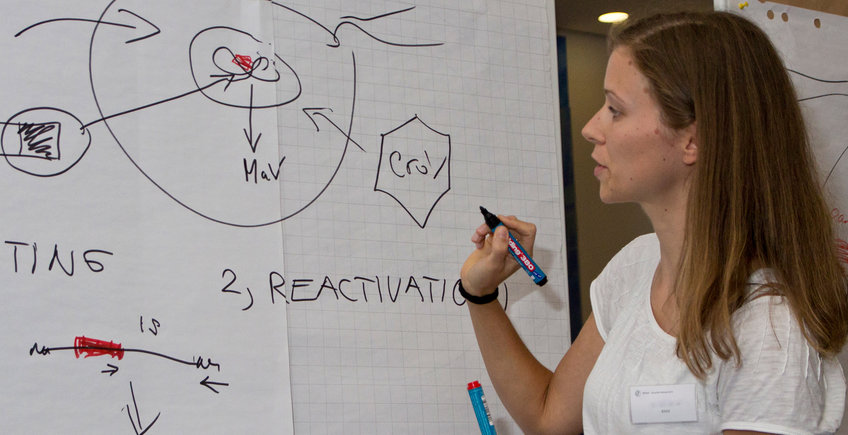
PhD Programs
You are creative, curious and passionate about basic research? You would like to live in the oldest university town in Germany and work at one of the famous Max Planck Institutes? You would enjoy doing research in a supportive, stimulating and diverse environment?
We welcome graduate students from all over the world and a wide range of disciplines. Because Max Planck Institutes cannot confer PhD degrees, our students are simultaneously enrolled at Heidelberg University and receive their doctorate from one of the university’s faculties ( Biosciences Faculty , Chemistry Faculty , Physics Faculty ). These faculties have their own specific requirements, which students must fulfill.
PhD students at the institute perform research work and write a thesis under the supervision of a scientist who leads a research group in one of the institute’s departments. Students are usually enrolled in a graduate program. We offer access to a number of graduate schools, such as the Max Planck School Matter to Life , the IMRPS-QD or other graduate schools of Heidelberg University. Most group leaders are associated with one or more of these graduate schools. Joining a graduate school makes you part of the Heidelberg life science community and gives you opportunities for scientific and social exchange outside of the institute.
For students who are not enrolled in a structured PhD program we offer support and guidance through individual Thesis Advisory Committees (TAC). The TAC monitors the progress and development of the PhD student and provides advice to both the student and his/her supervisor. The TAC members are also available for one-to-one consultations with the student and can become an important networking partner. Our PhD students can contact their committee members for personal discussions at any time.
For more information about the different PhD programs and the application procedure, please follow the links provided below. Alternatively, you may also directly contact the head of the department or group leader of the program you’re interested in. Just send an e-mail including your CV and a short description of your interests and expertise to establish first contact. Feel free to contact the PhD representatives or scientific coordinator with any general questions about working at our institute.
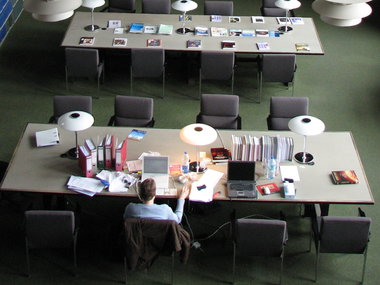
PhD Life at the Institute

Graduate Schools in Heidelberg
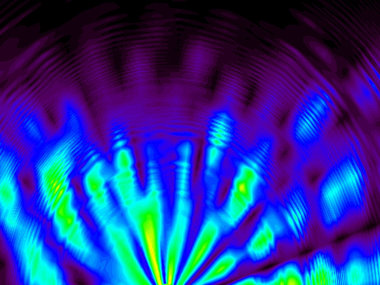
IMPRS Quantum Dynamics in Physics, Chemistry and Biology
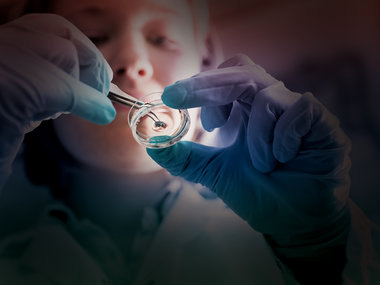
Max Planck School Matter to Life
Skip to Content Skip to Main Navigation Skip to Footer Skip to Search
Faculty of Medicine
Faculties and institutions.
- You Are Here: Internal M.D./Ph.D.-Program
Faculties and Institutes
- Mathematics, Computer Science and Natural Sciences Faculty 1
- Architecture Faculty 2
- Civil Engineering Faculty 3
- Mechanical Engineering Faculty 4
- Georesources and Materials Engineering Faculty 5
- Electrical Engineering and Information Technology Faculty 6
- Arts and Humanities Faculty 7
- Business and Economics Faculty 8
- Medicine Faculty 10
Find Institute:
Institutions.
- University Library
- Center for Teaching and Learning Services
- Athletics and Recreation
- Central University Administration
- All Institutions
To Portal Page
Courses of Study
- "Modellstudiengang Medizin" (Model degree program of medicine)
- Logopedic Courses of Study
- Biomedical Engineering, M.Sc.
- Physical Therapy Courses of Study
Forms of Teaching
- Blended Learning
- Problem based learning
- AIXTRA Skills Lab
- AIXTRA Dental
Study at RWTH
- Didactics of Medicine
- PAULA Teaching Award
- Teaching Projects
- Teaching Report
Everything about Studies
- Application and Admission
- Form Database
- Student Representative Councils
- Doctoral Studies
- Alumni Services
- Dean of Studies Office
- Academic Advising
- Study abroad advising
- Academic Omdud
- Central Course Guidance
- Paper of the Month Program
- Information on the new Report of Third-Party Funding
- *** Datenverwendung bei Forschungsprojekten ***
- Recommendations for authorship
- New research results on Friedreich's ataxia published
- Current Joint Projects
- Research Training Groups
- Renowned Science Awards
- Junior Research Groups
- Internal Programs
- Individual Funding Programs
- Mentoring Programs
- Structured Doctoral Training
- Staff Development Offerings
- Research Infrastructure
- CTC-A – Center for Translational & Clinical Research
- Core Facilities
- RWTH Centralized Biomaterial Database
- Electronic lab book eLabJournal
- Research Information and Funding Allocation
- Paper of the Month
- The Bonus Program
- Report of Third-Party funding
- Support Programs
- *** Researcher Alliance ***
- *** Ausgründung und Entrepreneurship ***
Organization
- Organizational Structure of the Faculty
- *** Dekanat ***
- *** Geschäftsführung der Fakultät ***
- *** Prodekanat für Finanzen ***
- *** Prodekanat für Studium und Lehre ***
Central Institutions
- AVMZ - Audiovisual Media Center
- Independent Ethics Committee
Equal Opportunities
- Gender and Diversity
- *** Kommission für Chancengerechtigkeit ***
- Gender Medicine Working Group
- *** Familie ***
Human Resources Development
- Habilitations
- Adjunct Process
- University Professorship
Institutes and Departments
- Institutes and Clinics
You Are Here:
Internal m.d./ph.d.-program, sub-navigation.
- Dissertation Success Program
- Program Layout
- Prerequisites
- M.D./Ph.D. Committee
- Application Materials
- Biomedical Graduate School Aachen
The current call for the internal Aachen M.D./Ph.D. program is available to download.
The deadline is August 31, 2023.
The contact person is Univ.-Prof. Dr. Huber (see Contact).
- Privacy Policy
Jump to content
PhD Studies & Research

Science and research in Germany are characterised by a distinguished infrastructure, a wide variety of disciplines, well-equipped research facilities and competent staff. Germany offers various career opportunities for international PhD students and researchers.
Deutscher Akademischer Austauschdienst e.V. Kennedyallee 50 53175 Bonn
All addresses in the DAAD Network
DAAD Newsletters
Receive regular up-to-date information about our work and organisation.
Newsletter - DAAD
Useful Links
- Find Scholarships
- DAAD offices worldwide
Jump to top of page
You are using an outdated browser. Please update your browser in order to view this page properly.
- Go to Home page .
- Go to Menu .
- Go to Content .
International Graduate Program Medical Neurosciences
From here, you can access the Emergencies page, Contact Us page, Accessibility Settings, Language Selection, and Search page.
- +49 30 2093 89742
- Contact form
- How to find us
Humboldt Graduate School Charitéplatz 1 (local address: Luisenstraße 56) 10117 Berlin
You can enlarge or reduce the browser window. Please use CTRL and + to zoom in or CTRL and - to zoom out. Press CTRL and 0 to reset your browser window to normal size.

- Doctoral Program
In this section you find information on how to apply for a
position as well as a short overview of the structure of the programs.
You are here:
Doctoral studies in medical neurosciences: phd and md/phd.
The doctoral program takes an interdisciplinary approach to neurosciences linking basic and clinical brain research. The program prepares students for careers at the interface of bench and bedside in the academic neurosciences as well as in the application oriented biomedical industry.
PhD in Medical Neurosciences
- Complete our PhD program
- Publish your Research results either as Cumulative Thesis or Monograph
MD/PhD in Medical Neurosciences :
- Obtained a German medical degree (Arzt) or an equivalent
The central part of the PhD program is the PhD project. For three years you will work in a research group conducting experiments, discussing results in your group, reading up on the literature and publishing. In additon, a PhD curriculum will expose you to important neuroscientific topics outside your immediate research focus. Besides courses or symposia you choose to attend,the program offers two one-week PhD training courses per year. Topics can range from "Quantification of Damage in the CNS" to "Basic and Clinical Neuroimmunology" and take into consideration PhD student suggestions. Complementary or professional skills like scientific writing or giving presentations are also planned.
In addition, lecture series, seminars, symposia, journal clubs, etc. are offered to our PhD students. This allows for either further focus and theoretical background in your research area or for expanding your neuroscientific horizon by delving into other topics.
Please go to admission for application details.
Structured Doctoral Programs
Each of our structured doctoral programs offers a comprehensive and cross-disciplinary curriculum designed to help you realize your full potential and prepare for a successful career. The programs include innovative, personalized advising with regular progress checks, as well as extensive opportunities to broaden your research network and connect with peers in your field.
The University of Bonn offers a wide range of funding opportunities, which have been summarized for you on this page, divided into the following categories:
Bonn International Graduate Schools (BIGS)
Phd programs within our cluster of excellence.
- Structured Doctoral Programs by Discipline
Third-Party Funded Programs
Doctoral education at the highest level: BIGS enable doctoral studies in outstanding research contexts with attractive international collaborations and a qualification program tailored to the needs of graduate students.
Located at the Hausdorff Center for Mathematics and supported by Germany’s Excellence Initiative, BIGS-M is home to all of the University’s doctoral candidates in mathematics and contributes to Bonn’s excellent international reputation in the field.
BGSE offers a structured program that is tailored to the needs of doctoral candidates, including an internationally recognized research network.
Supported by Germany’s Excellence Initiative and jointly administered by the renowned Physics Institutes at the Universities of Bonn and Cologne, BCGS offers doctoral studies through an integrated honors program.
Home to an international community of talented biomedical scientists, BIGS DrugS 6 6 is the hub for doctoral candidates from pharma research institutes within the University’s Faculty of Mathematics and Natural Sciences and Faculty of Medicine.
BIGS-OAS offers a wide range of courses within a research context, focused on the cultures and societies of Asia and Asia Minor.
BIGS Neuroscience provides a top-level, internationally competitive program in this rapidly growing field.
BIGS CPS's interdisciplinary approach combines medical, agricultural and pharmaceutical research.
BIGS Chemistry 10 doctoral candidates enjoy an exceptional and ambitious program covering all fields of chemistry.
This three-year doctoral program is offered in conjunction with the University’s ImmunoSensation Cluster, which is funded by Germany’s Excellence Initiative.
Part of the University of Bonn’s Center for Development Research, BIGS-DR trains students for an international career in development cooperation, policy or research through a combination of academic study and intensive tutorship.
The BIGS Land and Food combines the research at the agricultural Faculty with an interdisciplinary study program.
BIGS-LIMES offers a graduate program for doctoral students in Bonn specializing in biochemistry, life sciences and biomedicine.
Clusters of Excellence stand for international and interdisciplinary elite research and offer young scientists excellent funding and career conditions. The University of Bonn currently has six clusters of excellence, more than any other university in Germany, and thus opens up a broad spectrum of possible research topics to doctoral candidates. Here you will find an overview of the university's clusters of excellence.

PhD Programs within our Excellence Cluster
The goal of the Hausdorff Center of Mathematics is to identify and address mathematical challenges of the 21st century, to advance groundbreaking fundamental mathematical research worldwide, and to develop the mathematical methods and tools required by science and society.
Part of the Hausdorff Center is also a graduate school: The Bonn International Graduate School of Mathematics (BIGS-M) hosts all doctoral students of mathematics and contributes to the outstanding international reputation of the university in this field. The duration of the program is usually 3 years, and the doctorate (Dr. rer nat.) can be earned as a degree.
More information: https://www.bigs-math.uni-bonn.de/de/studies/ 14 15 15
ImmunoSensation2 aims to continue the success story of the existing ImmunoSensation cluster. While the emphasis so far has been on fundamental research in particular of the innate immune system, now the mechanisms of immune intelligence are to be uncovered, i.e. the question of how the body succeeds in adapting immune responses to specific situations and then remembers this in order to be optimally prepared for similar challenges in the future. The cluster's graduate school, the Bonn International Graduate School Immunosciences and Infection offers a structured, three-year doctoral program.
You can find further information about this program here:
https://www.immunosensation.de/opportunities/young-scientists
Until today, dependency studies has almost exclusively dealt with slavery on the American continent or in antiquity. The Cluster of Excellence "Bonn Center for Dependency and Slavery Studies (BCDSS)" aims to broaden this perspective in terms of content, space and time. Within the framework of the cluster, a structured doctoral program with a duration of 4 years is offered.
Further information can be found at: https://www.dependency.uni-bonn.de/en 15 16
Over the last few decades, computer hardware has become smaller and smaller, but their technology remains more or less the same. Slowly, this development is reaching its limits.Thus, we need new technologies that satisfy our growing hunger for even more powerful hardware.
Quantum physics could be a solution.
Together with the University of Cologne and the RWTH Aachen, Bonn researchers want to work on making this new technology usable. To achieve this, quantum bits or even qubits - the quantum counterpart to our previous bits - quantum communication channels that build networks and error correction methods have to be explored from the ground up. As part of the Excellence Initiative, the Bonn-Cologne Graduate School of Physics and Astronomy (BCGS) offers a doctoral program with an integrated honors program.
Further information can be found at: http://www.gradschool.physics.uni-bonn.de/. 4 4
The ECONtribute researches the functioning of markets as well as reasons for their failure. In doing so, the cluster goes beyond traditional analyses by systematically combining model-based theoretical approaches and behavioral explanatory models while incorporating legal and political frameworks. Within the cluster, the Bonn Graduate School of Economics (BGSE) offers doctoral students a tailored structured doctoral program that includes an internationally recognized research network.
Further information can be found at: https://www.bgse.uni-bonn.de. 3 3
Increasing agricultural production despite limited land while reducing the ecological footprint of agriculture - this is one of the challenges of our time. For this reason, the University of Bonn and Forschungszentrum Jülich are jointly developing methods and new technologies to observe, analyze, better understand and more specifically treat plants. The cluster's graduate school, the Theodor Brinkmann Graduate School, offers an interdisciplinary study program to master's students and doctoral candidates at the Faculty of Agriculture.
More information: https://www.phenorob.de/ .

The Third-Party Funded Programs at the University of Bonn offer structured doctoral studies on selected research topics. They enable close networking among doctoral students conducting research on related topics.
Bonn International Graduate School of Mathematics (BIGS-M) 2 17 18 18 Located at the Hausdorff Center for Mathematics, BIGS-M provides an umbrella for all Bonn PhD students in mathematics. Thus, the BIGS-M contributes to the excellent national and international reputation of mathematics at Bonn.
Bonn International Graduate School Immunosciences and Infection The BIGS Immunosciences and Infection is a structured 3-year PhD program in conjunction with the ImmunoSensation Cluster/Bonn. The ImmunoSensation Cluster is part of the Excellence Strategy.
DFG Research Training Group "Gegenwart/Literatur. Geschichte, Theorie und Praxeologie eines Verhältnisses" (GRK 2291) [only in German] The Research Training group supported by the DFG aims at the exploration and analysis of the constitutive dimensions of the concept of contemporary literature.
DFG international Research Training Group "Myeloid antigen presenting cells and the induction of adaptive immunity" GRK (2168) 19 19 19 19 The DFG-funded project is a cooperation of the University of Bonn and the University of Melbourne. The principal research focus is the intersection between innate and adaptive immunity in the context of infection.
DFG Research Training Group "Template-designed Organic Electronics (TIDE)" (GRK 2591) 21 21 21 The Graduate Program 'Template-Designed Optoelectronic Devices' (TIDE) aims to provide comprehensive doctoral education in the field of Organic Electronics (OE) to meet the requirements of highly qualified and multidisciplinary professionals.
DFG Research Training Group "Tools and Drugs of the Future - Innovative Methods and New Modalities in Medicinal Chemistry" (GRK 2873) The goal of the RTG " Tools and Drugs of the Future" is to modernize medicinal chemistry and train a new generation of medicinal chemists and researchers at the interface with interconnected disciplines. In addition, the projects are intended to contribute to the development of new drug substances.
Integrated Research Training Group at the DFG Collaborative Research Centre "Synaptic Micronetworks in Health and Disease" (SFB 1089) 22 22 27 27 Located at the newly inaugurated SFB 1089 on neuronal networks, the Integrated Research Training Group offers a structured graduate program for all doctoral researchers at the Centre.
Integrated Research Training Group at theDFG Collaborative Research Centre "Future Rural Africa" (SFB/TRR 228) The integrated research group is investigating the relationship between land use change and shaping the future in rural Africa in a total of 14 subprojects.
Integrated Research Training Group at the DFG Collaborative Research Centre "Open System Control of Atomic and Photonic Matter" (SFB/TRR 185) 24 The collaborative research centre Oscar will explore the physics of open systems.
Integrated Research Training Group at the DFG Collaborative Research Centre "Aortic Diseases" (SFB/TRR 259) 25 The aim of this research initiative is to better understand the molecular and cellular mechanisms of resident and non-resident cells in aortic diseases.
Integrated Research Training Group at the DFG Collaborative Research Centre "Regional Climate Change: Disentangling the Role of Land Use and Water Management" (SFB 1502) The SFB combines the strengths of the University of Bonn and its project partners to answer one of the most difficult questions in understanding climate change.
Integrated Research Training Group at the DFG Collaborative Research Centre "Brown and Beige Fat - Organ Crosstalk, Signaling and Energetics (BATenergy)" (SFB/TRR 333) The CRC investigates metabolism/diabetes and focusses on brown adipose tissue.
One Health and Urban Transformation
The NRW Forschungskolleg One Health and Urban Transformation is a transdisciplinary graduate school that aims to find interventions to achieve optimal health for humans, animals, plants and the environment with a special focus on developments in NRW, Saõ Paulo, Accra and Ahmedabad.
International Max Planck Research School Moduli Spaces 27 27 In cooperation with the University of Bonn, the renowned Bonn Max-Planck-Institute for Mathematics offers a PhD program with a special focus on the study of moduli.
International Max Planck Research School for Astronomy and Astrophysics 28 28 In cooperation between the Max-Planck Institute for Radio Astronomy and the Universities of Bonn and of Cologne, the Research School facilitates 3 years of PhD studies with a curriculum tailored to the individual student.
International Max Planck Research School for Brain and Behavior 29 The IMPRS for Brain & Behavior is a cooperation between the Max Planck Institute for Neurobiology of Behavior - caesar, the University of Bonn and the German Center for Neurodegenerative Diseases (DZNE) in Bonn
International Max Planck Research School - Recharge IMPRS-RECHARGE focuses on interdisciplinary research between chemistry and physics with an emphasis on catalytic mechanisms, physical-chemical analysis and energy topics. Scientific challenges shall be looked at from different angles. Furthermore the combination of theory and practice is a vital aim of the IMPRS-RECHARGE.
Marie Skłodowska-Curie Innovative Training Network "Macro and Microplastic in Agricultural Soil Systems“ (SOPLAS) The SOPLAS project will assemble a multidisciplinary team to study the nexus of plastic–agriculture–soil. It will also train a new generation of leading experts. The project aims to identify the plastic cycle within agricultural soil systems and support the development of environmental policies related to mitigating the impact of plastics. The findings will advance our knowledge about the sustainable use of plastics in European agriculture.
Marie Skłodowska-Curie Innovative Training Network "Early Stage Researchers EDUCational Program on Factor VIII Immunogenicity“ (EDUC8 ) 32 37 The EDUC8 program is a multidisciplinary training program with exposure of the enrolled ESRs to a core common educational package and development of individual PhD researchprojects dedicated to decreasing the societal burden associated with the development of anti-FVIII antibodies in Europe.
Tools4Teams - "Research Training to Design and Implement Tools Supporting Safe Teamwork in Healthcare"
The Tools4Teams research project will prepare the next generation of teamwork experts to contribute new insights and smart technologies for safe and effective care. Tools4Teams brings together expertise from social and technical sciences, human-centered design, education, and clinical specialties.
Trinational Graduate College "Mass and Integration in Antique Societies" [in German/French] Supported by the Deutsch-Französische Hochschule since 2011, the tri-national Graduate School in Ancient History offers curriculum events in Bonn, Berne, and Strasbourg.
Structured Doctoral Programs by Discipline
Find the right structured doctoral program at the University of Bonn in your discipline here:
- Cross-Disciplinary Options
- Medicine and Life Sciences
- Mathematics and Natural Sciences
- Agriculture

Faculties at the University of Bonn work together to design interdisciplinary programs that combine key perspectives and offer unique insights.
Cross-Disciplinary Programs
Bonn International Graduate School for Development Research (BIGS-DR) 42 Unique in Europe, BIGS-DR links perspectives from the Faculties of Philosophy, Agriculture, and Law and Economics – with an international focus.
Bonn International Graduate School of Neuroscience (BIGS Neuroscience) 8 8 A collaboration between the University’s Faculty of Medicine and Faculty of Mathematics and Natural Sciences, as well as external partners, BIGS Neuroscience offers a medical program alongside five research areas in medicine.
SciMed Doctoral College 43 42 The Doctoral College offers scientific training for students in medicine and dental medicine, leading to a dual Dr. med. and Dr. med. dent. degree.
Researchers at the University of Bonn explore a wide variety of issues in economics, including game theory, applied microeconomics, monetary and international macroeconomics, contract theory, labor economics and finance.
Economics Programs
Bonn Graduate School of Economics (BGSE) BGSE offers a structured program that is tailored to the needs of doctoral candidates, including an internationally recognized research network.
Law Programs
Graduate School of Law and Political Science Department of Law The Graduate School of the Faculty of Law and Political Science was founded in the summer semester of 2018 and supports the doctoral students in preparing their doctoral studies.
The University of Bonn’s Faculty of Medicine offers doctoral programs in medical biochemistry, neurosciences and pharmacology. With the exception of the SciMed Doctoral College, all programs are administered in cooperation with the University’s Faculty of Mathematics and Natural Sciences.
Cross-Disciplinary Program
SciMed Doctoral College The Doctoral College offers scientific training for students in medicine and dental medicine, leading to a dual Dr. med. and Dr. med. dent. degree.
Neuroscience
Bonn International Graduate School of Neuroscience (BIGS Neuroscience) BIGS Neuroscience provides a top-level, internationally competitive program in this rapidly growing field.
Synaptic Micronetworks in Health and Disease (SFB 1089) Supported by the German Research Foundation (Deutsche Forschungsgemeinschaft – DFG) collaborative research centers, this integrated research training group works to identify fundamental rules that govern neuronal behavior at the network level and translate network dynamics to mammalian and human behavior.
International Max Planck Research School for Brain and Behavior A joint venture of the University of Bonn, the Max-Planck-associated Center of Advanced European Studies and Research, the Max Planck Florida Institute for Neuroscience, and Florida Atlantic University, this graduate school offers a complete doctoral and research program in the neurosciences.
Pharma Research
Bonn International Graduate School of Drug Sciences (BIGS DrugS) Home to an international community of talented biomedical scientists, BIGS DrugS is the hub for doctoral candidates from pharma research institutes within the University’s Faculty of Mathematics and Natural Sciences and Faculty of Medicine.
Bonn International Graduate School of Immunosciences and Infection
This three-year doctoral program is offered in conjunction with the University's ImmunoSensation Cluster , which is funded by Germany’s Excellence Initiative.
DFG Research Training Group "Myeloid antigen presenting cells and the induction of adaptive immunity" GRK (2168) The DFG-funded project is a cooperation of the University of Bonn and the University of Melbourne.
At the University of Bonn’s Faculty of Arts, you’ll find a highly international environment with students and researchers in a wide range of fields.
German Studies, Comparative Literature and Culture
Structured Doctoral Program in German Studies (SPP) [website in German] Taught in German, the SPP supports doctoral candidates’ initiatives within the Institute for German, Comparative Literature and Cultural Studies.
German-Italian Doctoral College [website in German] Taught in German, this three-year grant program provides structured doctoral studies for researchers in German and Italian, with time in both Bonn and Florence.
History and Ancient History
Mass and Integration in Antique Societies [website in German and French] Supported by Franco-German University and taught in German and French, this trinational doctoral program includes study in Bonn; Berne, Switzerland; and Strasbourg, France.
Oriental and Asian Studies Bonn
International Graduate School of Oriental and Asian Studies (BIGS-OAS) BIGS-OAS offers a wide range of courses within a research context, focused on the cultures and societies of Asia and Asia Minor.
Romance Studies
Italian Studies [website in German and Italian] Offered in cooperation with the Universities of Florence and Paris-Sorbonne IV, this trinational doctoral program is taught in German and Italian.
Structured DPhil program at the Faculty of Arts The program supports qualified doctoral candidates from all disciplines in their doctoral projects. It provides the opportunity for networking, interdisciplinary exchange in diverse social sciences and humanities subjects, progress monitoring and financial support for travel, workshops or research funding as part of the doctorate.
European Founding Myths in Literature, Arts and Music [website in German, French and Italian] This trinational program is jointly organized by the Universities of Bonn, Florence and Paris-Sorbonne IV and taught in German, French and Italian.
Bonn International Graduate School for Development Research (BIGS-DR) Part of the University of Bonn’s Center for Development Research, BIGS-DR trains students for an international career in development cooperation, policy or research through a combination of academic study and intensive tutorship.
The University’s Faculty of Mathematics and Natural Sciences offers numerous externally funded doctoral programs in areas including mathematics and informatics, physics, biology, pharmacology and molecular biomedicine.
Programs in neuroscience, pharma research, immunoscience, and infection and molecular biomedicine are offered in cooperation with the Faculty of Medicine.
Mathematics
Bonn International Graduate School of Mathematics (BIGS-M) 2 2 Located at the Hausdorff Center for Mathematics, BIGS-M is home to all of the University’s doctoral candidates in mathematics and contributes to Bonn’s excellent international reputation in the field.
International Max Planck Research School on Moduli Spaces 53 53 This program includes courses, seminars and activities focused on the geometric spaces whose points represent fixed algebro-geometric objects (or isomorphism classes of such objects).
Physics und Astronomy
Bonn-Cologne Graduate School of Physics and Astronomy (BCGS) 4 4 Supported by Germany’s Excellence Initiative and jointly administered by the renowned Physics Institutes at the Universities of Bonn and Cologne, BCGS offers doctoral studies through an integrated honors program.
International Max Planck Research School of Astronomy and Astrophysics 55 55 This program offers a broad spectrum of topics in observational and theoretical galactic and extragalactic astrophysics, observational and theoretical cosmology, and fundamental physics – using astronomical tools and instrumentation.
Leibniz Graduate School on Genomic Biodiversity Research Based at Bonn’s Alexander Koenig Research Museum, this school is focused primarily on insect genome evolution.
Bonn International Graduate School of Chemistry (BIGS Chemistry) 57 57 BIGS Chemistry offers an internationally competitive doctoral program and opportunities to perform cutting-edge research.
Neurosciences
Bonn International Graduate School of Neuroscience (BIGS Neuroscience) 8 8 BIGS Neuroscience provides a top-level, internationally competitive program in this rapidly growing field.
Synaptic Micronetworks in Health and Disease (SFB 1089) 22 22 Supported by DFG collaborative research centers, this integrated research training group works to identify fundamental rules that govern neuronal behavior at the network level and translate network dynamics to mammalian and human behavior.
International Max Planck Research School for Brain and Behavior 29 29 The IMPRS for Brain & Behavior is a cooperation between the Max Planck Institute for Neurobiology of Behavior - caesar, the University of Bonn and the German Center for Neurodegenerative Diseases (DZNE) in Bonn.
Bonn International Graduate School of Drug Sciences (BIGS DrugS) 6 6 Home to an international community of talented biomedical scientists, BIGS DrugS is the hub for doctoral candidates from pharma research institutes within the University’s Faculty of Mathematics and Natural Sciences and Faculty of Medicine.
BIGS Immunoscience and Infection A structured, three-year doctoral program, IITB is offered in conjunction with the ImmunoSensation Cluster at the University of Bonn.
Doctoral candidates in the field of agriculture may choose to study through the Faculty of Agriculture’s Theodor Brinkmann Graduate School or earn their degree through the University of Bonn’s Center for Development Research.
Agriculture Programs
Bonn International Graduate School for Land and Food (BIGS Land and Food) Founded in 2008, the Brinkmann School is home to master's and doctoral candidates in the Faculty of Agriculture, combining research with an interdisciplinary study program.
Bonn International Graduate School for Development Research (BIGS-DR) 12 Part of the University of Bonn’s Center for Development Research 59 , BIGS-DR trains researchers for an international career in development cooperation, policy or research through a combination of academic study and intensive tutorship.

Dr. Robert Radu
+49 228 73-60222
Poppelsdorfer Allee 47
Office Hours
Questions about the structured doctorate? Register for the (virtual) office hours and get advice:
- Tuesday 2.00 p.m. - 4.00 p.m.
Additional Qualification: Doctorate plus
Expand your skills with our training program Doctorate plus.
Learn about the numerous funding opportunities and grants for doctoral students.
Events and Opportunities
Find out what's new and see upcoming events.
We have 13 Medicine PhD Projects, Programmes & Scholarships in Germany
Institution
All Institutions
All PhD Types
All Funding
Medicine PhD Projects, Programmes & Scholarships in Germany
12 fully funded ph.d. positions at the cologne graduate school of ageing research, funded phd programme (students worldwide).
Some or all of the PhD opportunities in this programme have funding attached. Applications for this programme are welcome from suitably qualified candidates worldwide. Funding may only be available to a limited set of nationalities and you should read the full programme details for further information.
Max Planck Research Programme
Max Planck Research Programmes are structured PhD opportunities set up by the Max Planck Society, an independent non-profit German research organisation. Max Planck Institutes and universities collaborate to offer interdisciplinary and international PhD opportunities providing high standards of training and support as well as generous funding.
PhD Positions in Life Science and Biomedicine Research Groups supported by a structured PhD program
Germany phd programme.
A German PhD usually takes 3-4 years. Traditional programmes focus on independent research, but more structured PhDs involve additional training units (worth 180-240 ECTS credits) as well as placement opportunities. Both options require you to produce a thesis and present it for examination. Many programmes are delivered in English.
PhD candidate - Origin of Obesity and Metabolic Disorders in Childhood (f/m/x)
Phd research project.
PhD Research Projects are advertised opportunities to examine a pre-defined topic or answer a stated research question. Some projects may also provide scope for you to propose your own ideas and approaches.
Funded PhD Project (Students Worldwide)
This project has funding attached, subject to eligibility criteria. Applications for the project are welcome from all suitably qualified candidates, but its funding may be restricted to a limited set of nationalities. You should check the project and department details for more information.
Fully funded (and no tuition) PhD program in psychiatric, translational research and basic Neuroscience with the option for a residency track for medical doctors.
Phd position in antiviral immunity and vaccinology (m/f/d), 10+ fully funded phd positions at the imprs for molecular organ biology, phd students (f/m/d) for super-resolution microscopy-based investigations of the glycocalyx, 5 fully funded phd positions in biology, biochemistry, life science, chemistry, medicine, computer science or related fields, phd studentship opportunities in the overall field of cognition research, doctoral (phd) positions at international max planck research school - biological intelligence, phd student positions at international max planck research school for molecules of life, munich, open call for 12 phd positions in msca doctoral network “miccrobiotackle”, funded phd programme (european/uk students only).
Some or all of the PhD opportunities in this programme have funding attached. It is available to citizens of a number of European countries (including the UK). In most cases this will include all EU nationals. However full funding may not be available to all applicants and you should read the full programme details for further information.
FindAPhD. Copyright 2005-2024 All rights reserved.
Unknown ( change )
Have you got time to answer some quick questions about PhD study?
Select your nearest city
You haven’t completed your profile yet. To get the most out of FindAPhD, finish your profile and receive these benefits:
- Monthly chance to win one of ten £10 Amazon vouchers ; winners will be notified every month.*
- The latest PhD projects delivered straight to your inbox
- Access to our £6,000 scholarship competition
- Weekly newsletter with funding opportunities, research proposal tips and much more
- Early access to our physical and virtual postgraduate study fairs
Or begin browsing FindAPhD.com
or begin browsing FindAPhD.com
*Offer only available for the duration of your active subscription, and subject to change. You MUST claim your prize within 72 hours, if not we will redraw.

Do you want hassle-free information and advice?
Create your FindAPhD account and sign up to our newsletter:
- Find out about funding opportunities and application tips
- Receive weekly advice, student stories and the latest PhD news
- Hear about our upcoming study fairs
- Save your favourite projects, track enquiries and get personalised subject updates

Create your account
Looking to list your PhD opportunities? Log in here .
Filtering Results
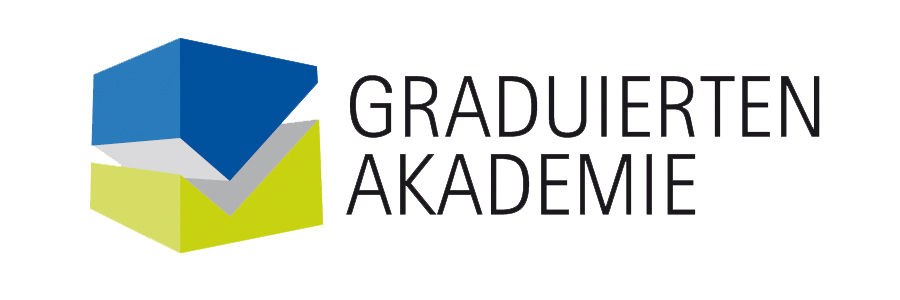
Ph.D. Programmes at Leibniz University

Increasingly in recent years, structured doctoral programmes such as graduate schools and graduate colleges have become established alongside the classic individual route to a doctorate in Germany. Structured doctoral programmes are characterised by a structured teaching programme and the inclusion of a demanding and interdisciplinary field of research.
Graduate Schools
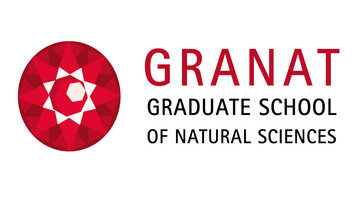
Graduate Schools within the Framework of Clusters of Excellence
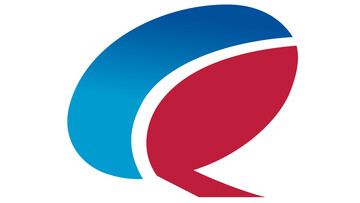
Research Training Groups
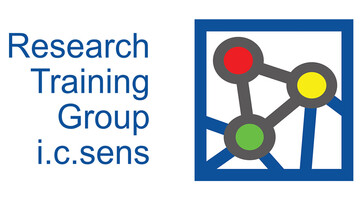
RTGs in cooperation with Leibniz University
Ph.d. programmes in lower saxony.
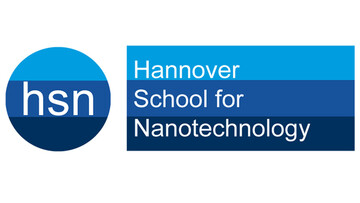
Last Change: 02.05.24; Graduiertenakademie Print

- © 2024: Leibniz University Hannover
- Legal Information
- Data Privacy
- Accessibility Statement
- Doctorate at Leibniz University
- General Overview Doctorate at Leibniz University
- Individual Doctoral Studies
- Ph.D. Programmes at LUH
- Admission and Registration
- Contact Persons at the Faculties
- International Doctoral Studies
- Main Leibniz University Website
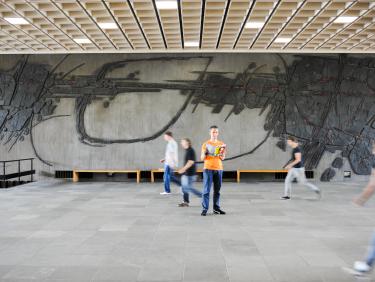
Doctoral candidates
Mehr erfahren

Treppenaufgang im Kollegiengebäude, Gipsabdruck
Doctoral Training in Heidelberg
Heidelberg University offers its PhD candidates a wide range of doctoral programmes with diverse levels of structuring – individual doctoral training, small and medium-sized training groups, or large Graduate Schools.
- Forms of Doctoral Training
- Doctoral Guidelines
- Structured Doctoral Programmes
The team at the Graduate Academy Service Point provides doctoral candidates from all faculties of Heidelberg University with comprehensive advice and services.
- Service Point of the Graduate Academy
- Dean’s Offices of the Faculties
The Graduate Academy assists doctoral candidates in their search and application for various types of funding.
- Doctoral Fellowships
- Fellowships in Structured Doctoral Programmes
The Graduate Academy of Heidelberg University offers doctoral candidates a seminar programme tailored to their specific needs and a wide range of further education opportunities.
- Seminar Programme for Doctoral Candidates
- Qualification and Further Training for Postdoctoral Researchers


International doctoral training
The Graduate Academy supports cooperation with international institutions and assists doctoral candidates in finding funding for research trips abroad.
- In Heidelberg - Incoming
Current News
Solidarity with ukraine.
The Graduate Academy offers information on support and offers of assistance.
Digital resources for doctoral candidates
The Graduate Academy has assembled a collection of online workshops and digital resources for self-study, which we will be updating continuously from now on. Visit our website to complete information about our digital program.
Places available
The course programme is open for registration. Further information on available places can be found on the Graduate Academy’s website.
Academic writing in English / German for doctoral candidates
The aim of the course is to support doctoral candidates who are not native speakers of English or German and who are writing their dissertation in English or German.
German Language Course
German Language Courses for doctoral candidates begin each April and October. Please see our website for more information.
UNIVERSITY OF COLOGNE International
quick links quick links Study in Cologne Study Abroad Erasmus Cologne Summer Schools
International Sample Institute
Finding accomodation in Cologne is difficult! Find out about the housing situation as early as possible on our websites and get in touch with students from Cologne .
Prospective Doctoral Students
Information for international graduates interested in earning a doctorate in Cologne
The University of Cologne offers numerous opportunities to obtain a doctorate: in structured programmes , in the traditional German individual doctorate under supervision as well as in cooperation with non-university research institutions .
"German PhDs have an excellent reputation and are internationally recognised."
Structured vs. individual PhD
Range of studies.
Browse through the websites of the Albertus Magnus Center (AMC) to learn about the possibilities at the University of Cologne or contact the faculties directly:

Albertus Magnus Center for Early Career Researchers

Graduate Schools and Doctoral Programs
Doctoral studies at the university of cologne, 1. general requirements, general requirements for recognition of your university degree:.
- Meeting the requirements for a PhD program at your university in your home country
- Completion of at least 4 years at an university followed by an exam and usually a Master thesis.
German language proficiency
Generally, you can earn your PhD in German and English at all faculties. In case you want to persue your doctorate in any other language than German please be aware that some faculties require an application and the approval of the supervisor.
Please confirm with your doctoral advisor
a) which language you want to write your dissertation in
b) which language your oral examination (Disputatio or Rigorosum) will take place in.
2. PhD / MD Regulations
Please inform yourself about your PhD / MD program requirements and process by carefully reading the regulations for the degree of your choice. For certain programs you need to have particular language skills or participate in doctoral student courses or lectures.
Below you will find the PhD regulations for each faculty:
Faculty of Management, Economics and Social Sciences
- Faculty of Law
- Faculty of Medicine
- Faculty of Arts and Humanities
- Faculty of Mathematics and Natural Sciences
- Faculty of Human Sciences
3. Contacting Your Doctoral Advisor
If you decide to pursue an individual PhD at the University of Cologne, you will need a doctoral advisor ("Doktorvater","Doktormutter").
Professors who can fulfill this function may be found on the web pages of the individual faculties. Please contact the desired advisor as early as possible.
When you contact a potential doctoral advisor, please enclose the following documents:
- Complete C.V.
- Description of your scientific research development
- Draft/outline of your research project.
If the professor accepts you as a doctoral advisee, he or she will issue a confirmation of academic supervision.
4. Contacts in the Faculties
https://cgs.uni-koeln.de/en/doctoral-phd-programmes
Contact: Ms Astrid Greuel Phone: +49-221-470-3213 E-Mail: [email protected]
Graduate School of the Faculty of Law
https://www.jura.uni-koeln.de/7229.html?&L=1
Contact: Dr. Tatiana Chekushina Phone: +49-221-470-6204 E-Mail: jura-promotion(at)uni-koeln.de
Faculty of Medicine
faculty of arts and humanities - central phd office of a.r.t.e.s. graduate school for the humanities cologne.
http://artes.phil-fak.uni-koeln.de/18302.html?&L=1
Contact: N.N. Phone: +49-221-470-1259 E-Mail: [email protected]
Faculty of Mathematics and Natural Sciences
https://mathnat.uni-koeln.de/en/phd
Faculty of Human Sciences
http://hf-promotionen.uni-koeln.de/31554.html?&L=1
Contact: Ms Karin Schüller Phone: +49-221-470-4619 E-Mail: [email protected]
5. Application
The application processes at the different Faculties vary. Please inform yourself on the respective websites or contact the contact persons at the Faculties, view point 4.
6. Enrollment
After receiving the admission from the responsible Doctoral Office, you can enroll at the International Office of the University of Cologne.
Checklist for enrollment for doctoral students
Mail account Every registered doctoral student has a student e-mail account . The mail address of the account is composed of the name of the student account and the ending "@smail.uni-koeln.de" (e.g. Max Mustermann has the mail address "[email protected]). In your own interest, you are obliged to regularly read your mails in this account, as all university communication runs via this address and you receive important information via this address (e.g. about upcoming exmatriculations due to non-payment). You will not receive any information on your "uni-koeln.de" account.
For e-mail enquiries please use our contact form . Address: Universität zu Köln Dezernat Internationales, Team Zulassung Studierenden Service Center, EG Universitätsstr. 22a 50937 Köln SSC (Student Service Center) < ground floor Mailing address: Universität zu Köln Dezernat 9 Internationales, Team Zulassung Albertus-Magnus-Platz 50923 Köln Service Point and telephone availability: General enquiries: Opening hours: Mondays till fridays 9:30 am - 12:30 pm wednesdays 1:30 - 3:30 pm Telephone: 0221-470-7797 Personal consultation (digital and in presence) with appointment booking/registration: Prospective students - Bachelor/State Examination (for non-EU citizens): tuesdays (in presence, address above) 10 am - 12:30 pm ( registration ) wednesdays (digital, zoom) 4 pm - 6 pm ( registration ) Prospective students - Bachelor/State Examination (for EU citizens and and citizens on equal terms, Germans with foreign Entrance Qualification): tuesdays (in presence, address above) 10 am - 12:30 pm ( registration ) wednesdays (digital, zoom) 4 pm - 6 pm ( registration ) Prospective students - Master: By appointment: ( registration ) Prospective Doctoral Students: Faculty of Management, Economis and Social Science; Faculty of Law, Faculty of Arts and Humanities, Faculty of Mathematics and Natural Sciences, Faculty of Human Sciences tuesdays (in presence, address above) 10 am - 12:30 pm ( registration ) wednesdays (digital, zoom) 4 pm - 6 pm ( registration ) Faculty of Medicine tuesdays (in presence, address above) 10 am - 12:30 pm ( registration ) wednesdays (digital, zoom) 4 pm - 6 pm ( registration )

Immigration & Residence

Costs & Financing

Accommodation
interesting services and information for international doctoral students , mentoring programmes of the hr development for researchers.

For female (doctoral) students with a primarily non-university career goal

Gender Mentoring-Agentur – for female students & doctoral candidates (GER/EN)

Erste Generation Promotion – for (doctoral) students with a non-academic background (GER)
Call for MD/PhD Programme Applications
The next application deadline for the DZIF Academy programmes is 15.09.2024.
The overall goal of the DZIF Academy is to close the gap of multidisciplinary training approaches within infection research in order to master the biological complexities associated with infectious diseases. MDs in particular are encouraged to pursue a career in infection research and contribute to the translation of novel findings from bench to bedside. Reflecting its dedication to training next-generation Clinician Scientists, the DZIF Academy annually awards full-time funding for three years (in exceptional cases as part time with a longer duration ) in order to enable MDs the opportunity to obtain an additional doctoral degree (Dr. rer. nat., PhD or equivalent) at one of the DZIF partner sites.
DZIF MD/PhD Programme: Who can apply?
- MDs (Physicians - Ärzte - or Dr. med.) in active patient service
- Advanced medical students nearing completion of medical studies
- Physicians ( Ärzte) and advanced medical students without the „Dr. med.“ are expected to hand in their medical doctoral thesis before starting their MD/PhD Programme. An approximate date for the Dr. med. defense must be included in the application.
Applicants may choose their host institution, which must be a member of DZIF. The research programme shall be coordinated between the applicant and host institution. The full-time funding covers a full MD salary and ensures 100% release from clinical duties for three years. After one year, the candidate must submit an interim report.
Host labs will receive €15,000 per year (€7,500 per year for part-time grants) for consumables.
The next deadline for applications is 15.09.2024. Please note that the earliest start date for the programme is 1 April 2025 to allow sufficient time for evaluation and administrative processing.
Applications must include:
- Online application form
- Motivation letter including long-term career goals (max. one page)
- Applicant’s CV (including publications and conference presentations)
- Mentor’s CV & publication record (last 4 years); list of doctoral and/or medical students supervised in the last 5 years incl. publications
- Validation from medical programme director foreseeing the completion of medical studies and/or medical doctoral thesis if not yet obtained
- Confirmation from DZIF site coordinator
- Form declaring clinical director´s approval of release: Bestätigung über Freistellung
Please note that candidates must apply to their structured doctoral programme of interest independent of the DZIF programme application. Integration into a structured doctoral programme is a pre-requisite for funding. A maximum of three applicants per partner site will be allowed.
Applications will be reviewed based on candidate´s qualifications and quality of the scientific project in relation to the DZIF mission. Important: Please send all application materials as a single PDF document to:

Doctoral Programs
The graduate schools, research training groups, and doctoral programs at the University of Bremen support doctoral students from Germany and abroad in an interdisciplinary research environment. In them, the young researchers are given the opportunity for independent research and intensive professional exchange, participate in specially designed courses, and benefit from innovative forms of supervision. The University of Bremen also cooperates with non-university research institutions in the area of junior researcher support, especially within the context of the International Max Planck Research School for Marine Microbiology MarMic and the Helmholtz Graduate School for Polar and Marine Research POLMAR.
BYRD Bremen Early Career Researcher Development
... is the central point of contact for doctoral students and post-doctoral researchers from all disciplines of the university for interdisciplinary qualification, networking, information, and personal counseling.
Graduate Schools

KD²School – Designing Adaptive Systems for Economic Decisions
Researchers from the fields of information systems, economics, psychology, and computer science from the Karlsruhe Institute of Technology, the University of Giessen, and the University of Bremen are working together in a new graduate school. They want to understand context-dependent, economic decision-making processes and create relevant IT-based systems for the support of economic decisions. The adaptive systems are to change according to the situation surrounding the decision and “improve themselves.” Professor Christof Weinhardt from the Karlsruhe Institute of Technology is spokesperson. “One example for the interdisciplinary approach is a PhD project, in which biosignals from brain activity and gaze tracking is analyzed and is then interpreted using machine learning processes (Bremen, computer science). When shopping, this is then linked to economic adaption mechanisms (Giessen, information systems) and behavioral consumer framework models (Karlsruhe, economics) in order to promote a healthier consumer behavior by means of targeted nudges,” says Professor Tanja Schultz, co-spokesperson of the new graduate school and head of the Cognitive Systems Lab at the University of Bremen. The computer scientist and her colleague psychologist Professor Manfred Herrmann (neuropsychology and biological psychology) are involved in the KD2School.

Micro-, meso- and macroporous nonmetallic Materials: Fundamentals and Applications MIMENIMA
The pioneering research idea of MIMENIMA is the conditioning of novel, porous ceramic structures and their surface for use in important areas of energy, environmental, process, and space technology. An interdisciplinary team of materials scientists, physicists, chemists, biotechnologists, and mechanical and process engineers is working together on this challenging research area.
Marie Sklodowska-Curie Actions (MSCA) - Doctoral Networks
6g terrestrial & non-terrestrial integration through an ai-native architecture (6g-terrain).
Projektstart 01.01.2025 Doctoral Networks Prof. Armin Dekorsy (Partner)
imProve Offshore infraStructurE resIlience against geohazarDs tOwards a chaNging climate (POSEIDON)
Project Start 01.03.2024 Doctoral Networks Prof. Kathrin Huhn (Partner)
poseidon-dn.eu
Marie Sklodowska-Curie Actions (MSCA) - Innovative Training Networks
Intra- and inter-areal communication in primate brain networks (in2primatebrains).
01.03.2021 Innovative Training Network Prof. Andreas Kreiter (Partner) https://in2primatebrains.eu
Reliable AI for Marine Robotics (REMARO)
01.12.2020 Innovative Training Network Prof. Michael Beetz (Partner) https://remaro.eu/
Graduate schools with Non-University Research Institutes
International max planck research school for marine microbiology marmic.
The International Research School for Marine Microbiology is run jointly by the University of Bremen, the Max Planck Institute for Marine Microbiology, the Alfred Wegener Institute for Polar and Marine Research, and Jacobs University Bremen. MarMic, which is funded by the Max Planck Society, offers a joint master's and doctoral program in marine microbiology.
Helmholtz School for Marine Data Science (MarDATA)
The doctoral students of the Helmholtz School for Marine Data Science (MarDATA) are trained in Kiel and Bremen/Bremerhaven. They are jointly supervised by two professors, one at GEOMAR or AWI for the marine research focus and one at the partner university in Kiel or Bremen for the information and data science methods. The doctoral degree is awarded in the fields of computer science/engineering (Dr. Ing.) or natural sciences (Dr. rer. nat.).
Helmholtz Graduate School for Polar and Marine Research POLMAR
Doctoral reseachers of the Helmholtz Graduate School for Polar and Marine Research (POLMAR) examine the polar marine ecosystems and climate change. The Graduate School is funded by the Helmholtz Association of German Research Centers. This graduate school is embedded in the Alfred Wegener Institute for Polar and Marine Research (AWI). It involves cooperation between the AWI, the University of Bremen, Max Planck Institute for Marine Microbiology, Jacobs University Bremen, and the University of Oldenburg.
Recognised structured doctoral programmes

Further doctoral programs
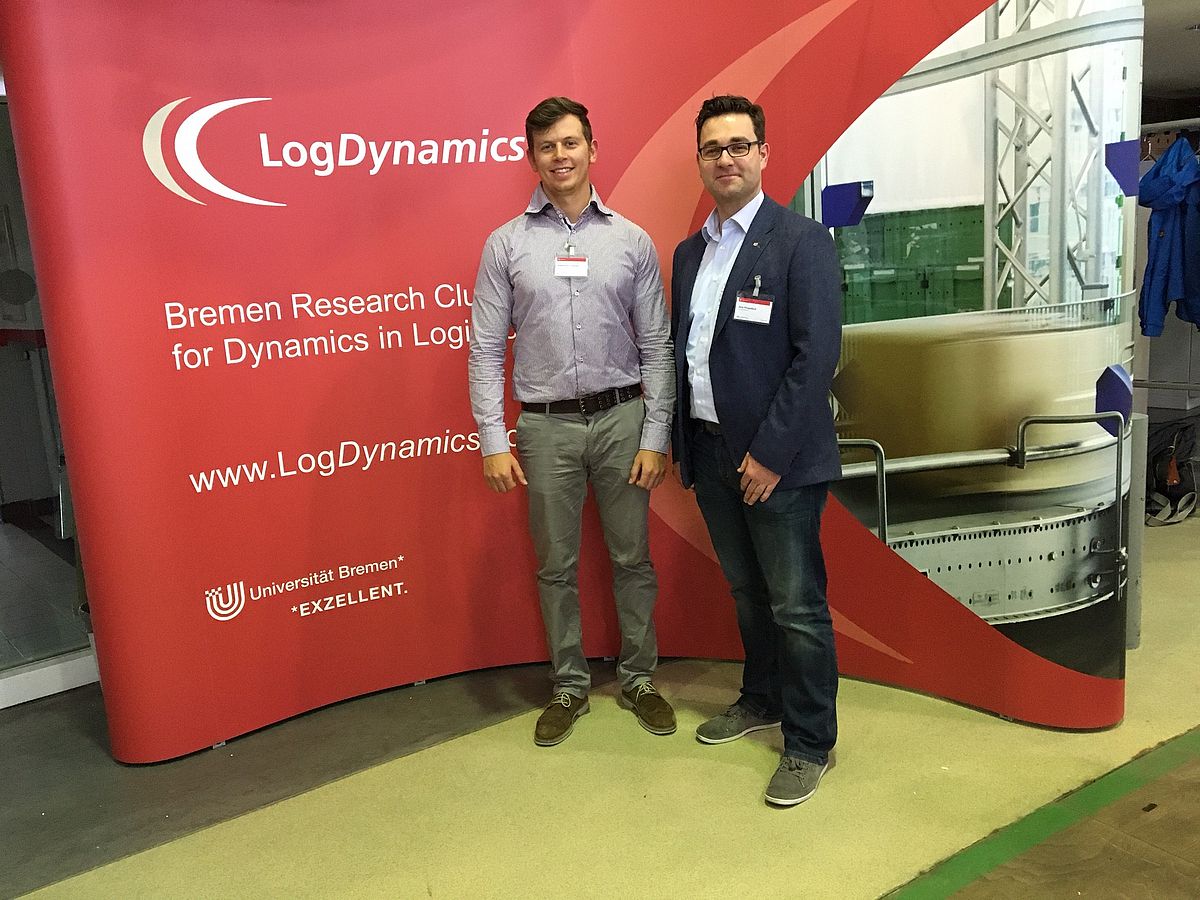
Programs for Graduate and Master Students
Do you study life sciences or medicine?
Are you interested in a bachelor's, master's , or doctoral thesis at our institute?
Then you are welcome to apply directly to our directors and research group leaders.
You can find information on the various doctoral programs at the Göttingen Campus , in which our institute participates, here. If you have general questions regarding your application, please contact our coordinator Antje Erdmann (see contacts on the left).
All our students doing research at the institute for a thesis or doctoral thesis must be enrolled at a university at the same time. With a few exceptions, academic titles in Germany are only awarded by the nationwide universities. The institute, therefore, cooperates closely with the University of Göttingen in the IMPRS doctoral programs listed below, where our directors and research group leaders also teach and give seminars.
International Max Planck Research Schools (IMPRS)

Max Planck School Matter to Life
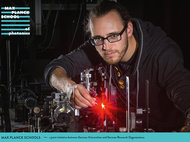
Max Planck School of Photonics
There are also programs for young scientists within the framework of further cooperations between the institute and the University of Göttingen, the Max Planck Institutes for Dynamics and Self-Organization and for Experimental Medicine as well as the German Primate Center. These include:
- the European Neuroscience Institute Göttingen (ENI)
- the Bernstein Center for Computational Neuroscience Göttingen (BCCN Göttingen)
- the Göttingen Excellence Cluster nad DFG Research Center Nanoscale Microscopy and Molecular Physiology of the Brain (CNMPB)
German Graduate Schools of Neuroscience
Welcome to our website. We represent a selection of German neuroscientific graduate schools and provide information about 29 international programs at a glance. The most relevant content of each program is available in this brochure
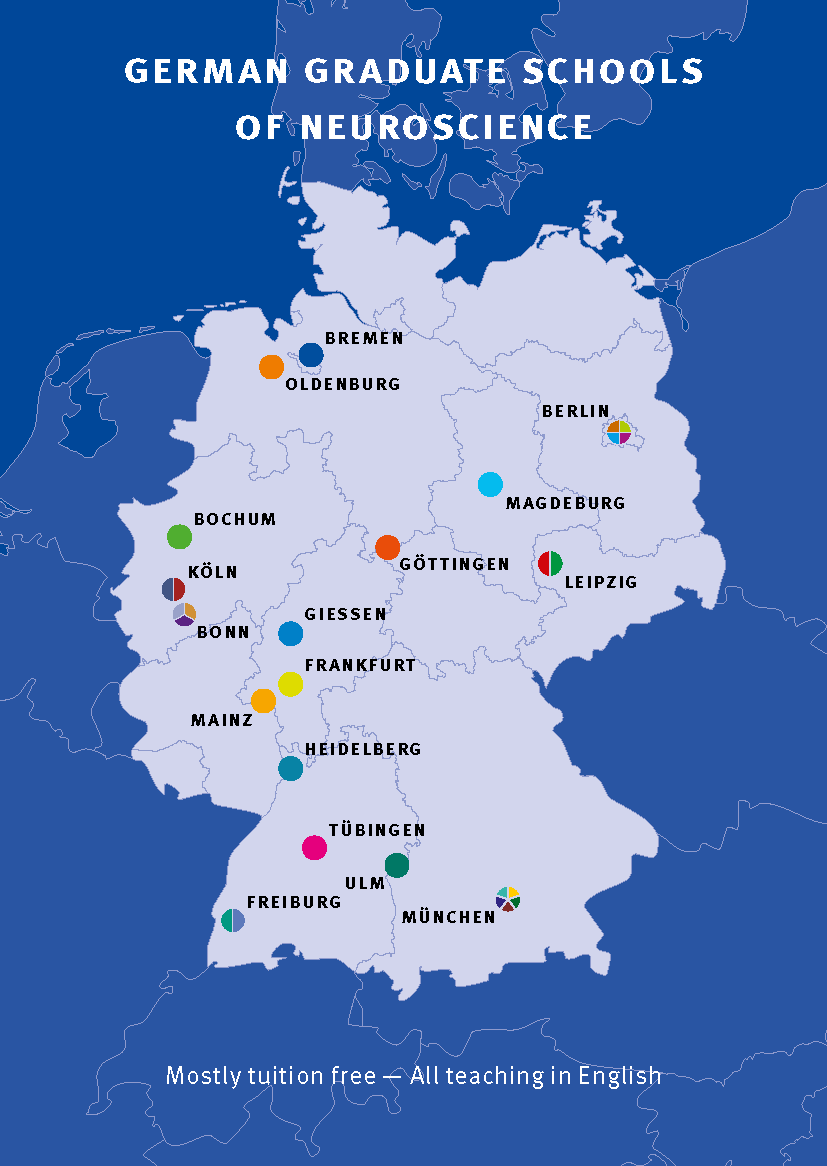
Legal notice
Ruhr-Universität-Bochum International Graduate School of Neuroscience Contact: [email protected]
Universität Bonn MSc Neurosciences Contact: [email protected]
Universität Bonn Bonn International Graduate School (BIGS) of Neuroscience Contact: [email protected]
Max Planck Institute for Neurobiology of Behavior International Max Planck Research School (IMPRS) for Brain and Behavior Contact: [email protected]
Universität Bremen MSc Graduate Program Master of Neurosciences Contact: [email protected]
Max Planck-Institute for Brain Research International Max Planck Research School (IMPRS) for Neural Circuits Contact: [email protected]
Universität Freiburg Interdisciplinary Master of Science Program in Neuroscience Contact: [email protected]
Universität Freiburg PhD Program in Computational Neuroscience and Neurotechnology Contact: [email protected]
New Member: HAMBURG
Universität Hamburg Hamburg Brain School Contact: [email protected]
Universität Heidelberg International Graduate Program of the Interdisciplinary Center for Neurosciences Heidelberg Contact: [email protected]
Universität Köln MSc Experimental and Clinical Neuroscience Contact: [email protected]
Universität Köln MSc Neuroscience Contact: [email protected]
Universität Mainz Mainz Research School of Translational Biomedicine (TransMed) , Section Neurosciences Contact: [email protected]
Universität Oldenburg Master Programm in Neuroscience Contact: [email protected]
Universität Tübingen Graduate Training Center of Neuroscience Contact: [email protected]
Humboldt-Universität zu Berlin Berlin School of Mind and Brain Contact: [email protected]
Charité - Universitätsmedizin Berlin International Graduate Program Medical Neurosciences Contact: [email protected]
Bernstein Center for Computational Neuroscience Berlin International Graduate Program Computational Neurosciences Contact: [email protected]
Freie Universität Berlin Master Cognitive Neuroscience Berlin (MCNB) Contact: [email protected]
Justus Liebig University Giessen MSc Mind, Brain and Behavior Contact: [email protected]
Georg-August-Universität Göttingen European Neuroscience Institute MSc/PhD/MD-PHD Neurosciences Program Contact: [email protected]
Max Planck Institute for Human Cognitive and Brain Sciences International Max Planck Research School on Neuroscience of Communication (IMPRS NEUROCOM) Contact: [email protected]
Max Planck Institute for Human Cognitive and Brain Sciences Max Planck School of Cognition Contact: [email protected]
Otto-von-Guericke Universität Magdeburg Integrative Neuroscience Contact: [email protected]
Ludwig-Maximilians-Universität München MSc/PhD Neurosciences Program Contact: [email protected]
Technische Universität München (TUM) Master Program Biomedical Neuroscience Contact: [email protected]
Universität Ulm MSc Program Molecular and Translational Neuroscience (MTN) Contact: [email protected]
PhD & MD-PhD Programs
- PhD Program
- MD-PhD Program
- Application
- Student Life

Why choose the FMI?
Science : The FMI is an international leader in biomedical research in the fields of Neurobiology, Genome Regulation and Multicellular Systems. It provides interdisciplinary training and access to state-of-the-art technology platforms. Our affiliations with the University of Basel and with Novartis, as well as our location at the center of the greatest European Life Sciences hub, provide numerous opportunities for scientific collaborations.
Training : A wide range of theoretical and practical courses are available at both the FMI and the University of Basel. FMI provides an annual PhD orientation afternoon and a Scientific Inquiry Course for first year PhD students, as well as a PhD retreat outside the FMI. Most students participate in “progress reports” to discuss science and practice their presentation skills. Many labs provide journal clubs. In addition, students participate in the FMI Annual Meeting and are encouraged to attend international conferences to present projects and develop their networks.
Mentoring : PhD students are mentored throughout their PhD by their supervisor (group leader) and by their thesis advisory committee members. There may also be initial supervision/collaboration by/with more senior students or postdocs in their labs.
Support : PhD students are supported by the PhD program coordinator (for administrative management), the PhD representatives (to bring forward ideas and concerns of students) and the Dean of students (liaison with the University of Basel and confidential advice). In addition, PhD students can consult our dedicated Guidance Counsellor for confidential support on any issues concerning projects, mentors, lab environment, work/life balance or career planning.
Career development : Group leader supervisors, the Head of Human Resources, and the Guidance Counsellor are key people supporting students’ career development. PhD and Postdoc representatives organize career events and professional development workshops with external trainers. In addition, many workshops on career development are offered through the Basel University Graduate Center. FMI PhD students are also able to join an employee program at Novartis, matching them with an industry mentor.
Life at the institute : With staff of more than 40 different nationalities, the FMI offers a truly international, open and welcoming environment. All FMI students are encouraged to organize and participate in activities outside the lab (e.g. sport groups, movie nights...). Happy Hours are held once a month on Friday afternoon, sometimes including barbecues on the rooftop terrace. The annual PhD retreat provides a relaxed opportunity to connect with fellow students in a beautiful setting.
Life in Basel : Basel – the third largest city in Switzerland, with a rich cultural heritage – is a great place to live. It has a lot to offer in terms of culture, entertainment, dining, etc., while being easy to navigate thanks to its relatively small size. Located right on the border with France and Germany, and home to several multinational companies, Basel is highly international. As well as providing easy access to neighboring countries, it is close to the many beautiful places in Switzerland. Switzerland is an expensive country, but the FMI offers a generous stipend for living expenses.
Learn more about our PhD and MD-PhD programs in the various sub-sections (tabs at the top of the page).
Important Dates
We have two application rounds per year, with an application period of 2.5 months.
- Opening Spring round: February 15, 2024
- Closing: May 1, 2024
- Interviews: Week of June 17, 2024
- Next round: September 1, 2024
- PhD Program: [email protected]
- MD-PhD Program: [email protected]
| Online Application Form (PhD Program) |
| Online Application Form (MD-PhD Program) |
Spotlight on FMIers
See all interviews: Spotlight on FMIers
Applicants must hold, or anticipate receiving before enrollment, a university degree that would formally qualify them to enter a PhD or equivalent program in their home country (MSc., Diploma, DEA etc.) Admission is competitive, involving a selection procedure that takes place twice a year (in January and June). The deadline for applications is 1.5-2 months prior to the selection procedure (in November and May).
A course of study at the FMI leading to a PhD degree of the University of Basel typically lasts four to five years. Thesis defenses take place at the FMI and are public.
Program highlights
- Welcome meeting for first year PhD students & Dean of Students, Guidance Counsellor and PhD student representatives
- Scientific Inquiry course for first year PhD students
- Annual check-ins with Guidance Counsellor
- Annual thesis committee meetings
Mentoring & support
The main supervisor and mentor of the PhD student is the leader of the research group. Students are also supported by their thesis advisory committee composed of internal and external experts whom the students choose together with their supervisor. The FMI put in place mentoring guidelines and conducts lab surveys on a regular basis to maintain excellence in mentoring.
Additional academic advice, professional development support and advocacy on behalf of the students is also available through the FMI Dean of Students and the Guidance Counsellor.
As Dean of Students, Marc Bühler acts as an academic liaison with the University of Basel. He offers confidential, impartial advice, and can help resolve problems by acting as a neutral intermediary between students and the academic or administrative areas of the University and the FMI.
As Guidance Counsellor, Piera Cicchetti offers individual counselling to promote the academic and professional development of students and resolve difficulties. She attends thesis committee meetings to support best practices, develops the training curriculum, and organizes professional development activities with students and postdocs.
Graduate courses
- neurobiology
- cell biology
- developmental biology
- biophysical chemistry
- structural biology
- systems biology
- bioinformatics
- infection biology
PhD students are required to complete 18 credit points (CPs) during their PhD thesis. A minimum of 6 CPs must come from the University of Basel approved graduate teaching program . A maximum of 12 CPs can be collected by active participation in meetings, practical courses, progress reports, group meetings, and the University of Basel transferable skills courses etc.
Compensation
The FMI provides financial support to graduate students in accordance with the scale of the Swiss National Science Foundation . Salary is generous relative to international standards for PhD students.
The FMI MD-PhD Program was launched in summer 2016 to provide the opportunity to research-oriented medical students and physicians to carry out cutting-edge biomedical research and do a PhD thesis. Students can benefit from the excellence of the well-established PhD program, the reputation of the Basel Medical School and a privileged relationship with the researchers of the major pharmaceutical company Novartis.
The FMI MD-PhD program is intended for individuals who have studied medicine and who wish to gain a deep knowledge in fundamental biological research by performing a PhD thesis. Students applying to the program must hold, or anticipate to receive before their enrollment, a university degree that would qualify them to enter formal clinical training / residency (e.g., a diploma in medicine or an approbation). They also should have some laboratory research experience and have done an experimental Master/Diploma thesis, which must be approved by the University of Basel. Admission is competitive, involving a selection procedure that takes place twice a year (in January and June). The deadline for applications is 1.5-2 months prior to the selection procedure (in November and May).
A course of study at the FMI leading to a PhD degree of the University of Basel typically lasts four years. It is the responsibility of the thesis advisory committee, together with the student and supervisor, to assess the project status and recommend when the thesis should be written/submitted. Thesis defenses take place at the FMI and are public.
The main supervisor and mentor of the MD-PhD student is the leader of the research group. Students are also supported by their thesis advisory committee composed of internal and external experts whom the students choose together with their supervisor. The FMI put in place mentoring guidelines and conducts lab surveys on a regular basis to maintain excellence in mentoring.
As Dean of Students, Marc Bühler acts as an academic liaison with the University of Basel. He offers confidential, impartial advice, and can help resolve problems by acting as a neutral intermediary between students and the academic or administrative areas of the University and the FMI.
Clinical work
Interested students can devote up to 20% of their PhD study time to clinical work - in agreement with their PhD supervisor at the FMI. The clinical work is done in conjunction with a Professor at the Medical Faculty of the University of Basel and will often be part of a collaboration between the FMI Group Leader and the Medical Faculty Professor.
General requirements
The application procedure is the same for the PhD and the MD-PhD Program. For the PhD Program, applicants must hold a university degree that would formally qualify them to enter a PhD or equivalent program in their home country (MSc., Diploma, DEA, etc). Please note that a Bachelor's degree does not qualify for entry into our PhD Program.
For the MD-PhD Program, applicants must have studied medicine and must hold a university degree that would formally qualify them to enter clinical training in their home country (Medical Diploma, Approbation, etc). Having documented research laboratory experience is strongly recommended.
There are two rounds of applications per year, with application deadlines in May and November. All applications are reviewed by group leaders who have openings within their teams. A group of shortlisted candidates will be invited for interviews in June and January, respectively.
The application
Please fill in the online application form. Note that this information and relevant documents will be shared among various people within the FMI for assessment.
» Online application form (PhD Program) » Online application form (MD-PhD Program)
You should provide contact details of at least one referee familiar with your training and research experience. Multiple letters (up to three) are preferred. Referees will receive an individualized link to upload their letter (not visible to you) once you have submitted their contact information. We suggest to submit a first version of your application, containing contact information of referees early, in order to give referees sufficient time to provide their letters. You will be able to revise your application up to the deadline. Please ask your referee(s) to use this reference letter template:
» Reference letter template
- The application period for the spring/autumn round normally starts on February 15/September 1 respectively.
- Applications are open for a period of 2.5 months, with closing dates on May 1/November 15 respectively.
- The interviews take place approximately 7 to 8 weeks after each deadline, in person at the FMI in Basel.
For more information about the application process, please check out our Q&A section (FAQ tab above)
If you still have questions about the PhD Program, please contact Elida Keller at the FMI PhD Program office: [email protected] .
If you still have questions about the MD-PhD Program, please contact the FMI MD-PhD Program office: [email protected]
The FMI has an active student body of about 80 PhD students (and a few Master’s students) – coming from all over the world. Our students are supported by a PhD student representative committee that is elected every year. The main reason why students join the FMI is to conduct a successful PhD in an environment of scientific excellence. However, there are plenty of other reasons that make student life at the FMI appealing.

Our students have many training opportunities, and they organize and participate in various seminars and career events.

We have many sports fans at the FMI; associates can join several sports team, including a running team.

Our FMI football team always fights hard in our annual tournament against the Biozentrum and the ETH!

The yearly PhD retreat is a great opportunity to learn, and connect to fellow students in a relaxed setting in a beautiful location.

Everyone at the FMI can join the Monthly Happy Hours. Cheers!

We have by-weekly Happy Hours at the FMI. Cheers!

And life in Basel is great… especially in the summer!
Frequently Asked Questions (FAQ)
Please refer to the frequently asked questions and answers below if you have any concerns regarding your application to the FMI International PhD Program or the FMI International MD-PhD Program (open to all countries).
Q: What are the required degrees / pre-requisites to be eligible to the FMI PhD Program and the FMI MD-PhD Programs, respectively? A: For the PhD Program , applicants must hold a university degree that would formally qualify them to enter a PhD or equivalent program in their home country (MSc., Diploma, DEA, etc.). For the MD-PhD Program , applicants must have studied medicine and must hold a university degree that would formally qualify them to enter clinical training in their home country (Medical Diploma, Approbation, etc.). Having documented research laboratory experience is strongly recommended.
Q: Is there an age limit to apply to the programs? A: No, there is no age limit to apply. The only formal requirement for application is a university degree as detailed above.
Q: Do I need an English certificate to apply to the program? A: No this is not required. Even though English is the business language used at FMI there is no requirement for you to have an English certificate.
Q: When should I submit my application? A: The PhD Program and the MD-PhD Program both offer two rounds of selection every year, with application deadlines usually in May and November and interviews in June and January respectively. The application portal is open approximately three months before each deadline and you can submit your application during this time when ever your feel is appropriate. You will be able to edit it up to the deadline.
Q: How many openings are offered in each round of selection? A: The number of openings varies and is only known at the application deadlines. All candidates who are invited to the interviews will be informed of groups with openings when receiving the invitation letter. This number is not communicated to the candidates who are not invited for an interview.
Q: Why is there no list of groups that will have positions available? A: Positions frequently become available only after the application deadlines. You may consider contacting a group leader directly if you wish to enquire about the availability of a position in a particular group. However, because we have observed in the past that students become excited about groups and research topics they had not initially considered, we encourage you to apply for and join the interviews with an open mind.
Q: In the application form, I am asked to indicate research groups at FMI that are of particularly interest to me and to write an essay on my specific research interests. Does this have an influence on the group I may join? A: No. Although we use this information to channel the application review, it is the quality, not the topic of the essay that matters most. Candidates that are invited to the interviews can freely explore all available openings, irrespective of previously expressed interests.
Q: Can I apply more than once? A: Although there is no formal limit on the number of times you can apply, we discourage re-applications because of their low success rates. Hence, you should only consider reapplying if you can update and revise your original application to strengthen it substantially. Please note that due to the volume of applications we are not able to provide feedback on the reasons that specific applicants were not invited.
Q: Can I submit my CV for review before I apply, so you can check that I fulfill all the requirements? A: Due to the very high number of applications we receive every session, this is unfortunately not possible. Please note that if you have the required degrees then you are allowed to apply.
Q: Do you offer PhD positions in Bioinformatics? A: Many group leaders at the FMI are involved in bioinformatics projects and FMI has a dedicated Bioinformatics platform composed of five permanent members. Thus, we encourage you to apply if you are interested in this field of study.
Q: Can I update my application once it has been submitted? A: Yes. Once you have submitted your application you will receive a confirmation email with a personalized link to update the content of the application. You will be able to modify your application until the submission deadline.
Q: Can I add/remove referees once I have submitted my application? A: Before the submission deadline, you may add referee(s) to the originally submitted list, but not remove them. Contact details for a total of up to three referees can be provided, and we prefer to receive more than one letter for a balanced assessment.
Q: Where is the link for my referee to upload the reference letter? A: Once your application has been submitted, an automated email will be sent to the referee(s) you have entered in the form. The email contains a personalized link for the referee to submit the reference letter.
Q: Once the reference letter has been uploaded by my referee, do I get informed? A: Yes. Once the referee has submitted the reference letter through our online tool, an automated email is sent to the referee and you to confirm that the upload has been successful. However, you will not see the content of the letter submitted. If you have not received a confirmation email close to the application deadline, we highly recommend that you contact your referee to ask for a status.
Q: I made a mistake in the email address of my referee, how can I correct it? A: If you realize that there is a typo in the email address of your referee we ask you to contact your referee and ask him/her to send an email to [email protected] for the PhD program, [email protected] for the MD-PhD program, in order to change the email address. You are not allowed to modify the email address yourself.
Q: Is the deadline for the referees to upload the reference letters the same as the deadline for the candidates to submit their applications? A: No, referees have one more week after the application deadline to submit the reference letters. However, we strongly encourage you to contact your referees few days before the application deadline to ensure that they send the reference letters on time.
Q: If I am accepted for an interview, will I be reimbursed for the trip and stay in Basel? A: Yes, the FMI will reimburse you for your travel expenses. You are required to book and pay your travel tickets (plane, train, etc.) ahead of your interview and the FMI will reimburse you based on the invoices provided. Your stay in the hotel will also be covered. The invitation letter you receive after having been selected contains more information and guidelines about the travel expenses. Please do not book your travel until you have confirmed your visit to the FMI.
Q: If I am accepted for a PhD position, will I receive compensation during my time at the FMI? A: Yes. The FMI provides financial support to graduate students in accordance with the scale of the Swiss National Science Foundation . . Income is generous relative to international standards for PhD students (see document in German - English).
Q: Are there any additional steps when applying for the MD-PhD Program? A: The application and first interview process are the same for both Programs. If you are accepted as an MD-PhD candidate by the FMI you will be invited for an additional interview with the Medical Faculty of the University of Basel. Whenever logistically possible, this second interview will take place shortly after the FMI interview. If not possible, the second interview will take place a few weeks later.
If your question is not listed above, please contact [email protected] (PhD Program) or [email protected] (MD-PhD Program) for information.
- Free Courses
- Learning Path
- Career Guide
Recommended Study Abroad Programs
MS in Data Analytics from Clark University USA
Study at Clark University in the USA without GRE/GMAT. Learn to leverage data for strategic business decisions with top faculty and industry leaders.
Masters in Business Analytics from University of Arizona
Study for an affordable MS in Analytics at the University of Arizona without GRE/GMAT. The program is STEM OPT visa eligible, making it perfect for studying abroad.
Why Pursue MS in Data Science in Germany?
Mandatory modules:, elective modules:, 2. ludwig-maximilians-universität münchen, 3. university of europe for applied sciences, 4. eu business school, 5. rwth aachen university, 6. freie university of berlin, 7. universität heidelberg, 8. hertie school, 9. university of mannheim.
- 10. University of Göttingen's
Master Your Study Abroad Experience with Our Free Courses
Top 10 master of data science colleges in germany.
Learn about the Top 10 Master of Data Science Colleges in Germany and select the perfect institution for advancing your education and career in data science.
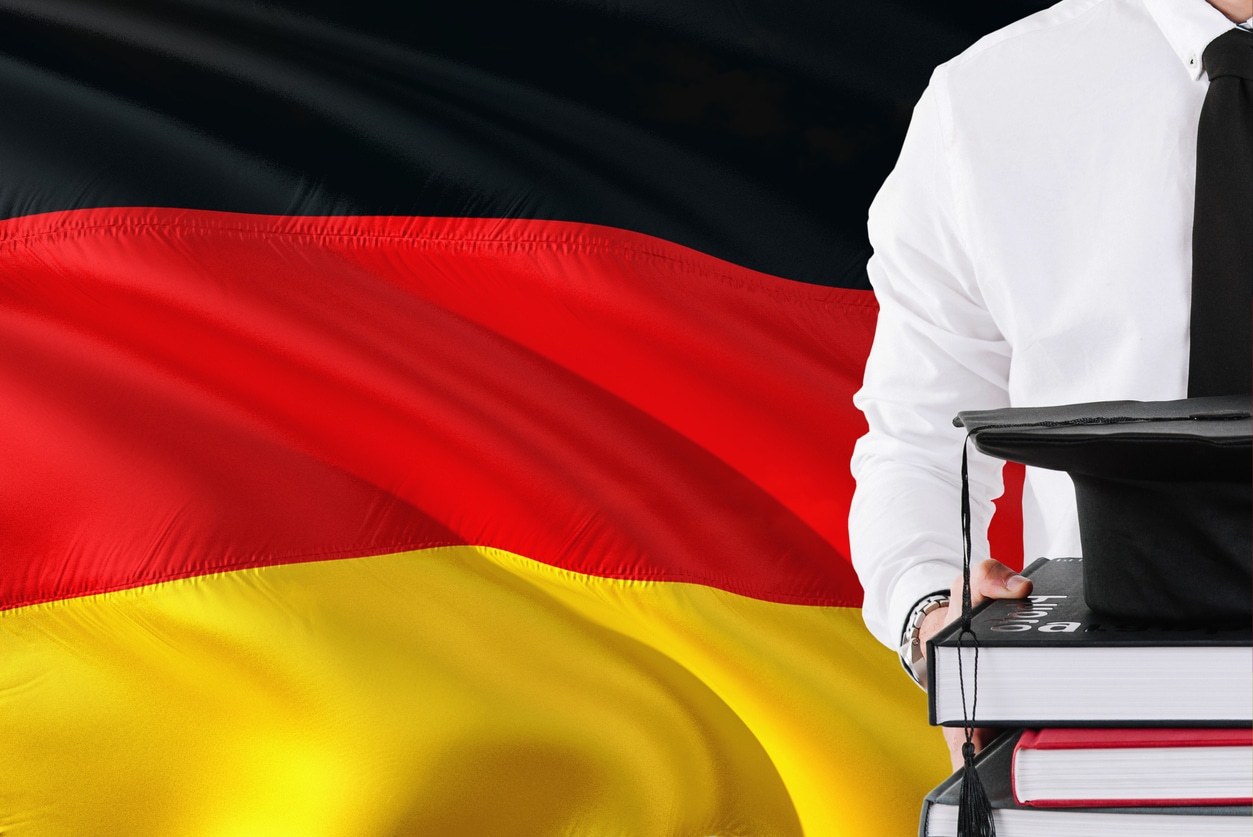
As data transforms every sector, earning a degree in Germany opens limitless opportunities. The employment of data scientists is projected to grow 35% from 2022 to 2032.
However, with numerous programs and universities, selecting the ideal data science master’s program in Germany can be challenging.
That’s why you should opt for the one that fits your academic background, offers access to top-notch research opportunities, and prepares you for a rewarding career.
You can tap into unparalleled job prospects in the thriving German leading companies like SAP, BASF, ABB, Roche, and Heidelberg Materials, driving innovation in analytics and technology across Europe.
This blog explores the top 10 Master of Data Science colleges in Germany, highlighting their unique features and strengths. By examining these programs, you can find the perfect fit for your career aspirations and academic goals
Are you considering pursuing MS in Data Science in Germany? Here are some compelling reasons to do so:
1. Secure and welcoming
Germany offers a multi-faceted environment and ranks as the third-best country globally for international students seeking settlement. It’s an ideal destination for postgraduate data science students to interact with diverse communities and enjoy their academic journey.
2. Cost-effective education
With numerous public universities providing tuition-free MS in data science in Germany programs , education is budget-friendly. Public universities in Germany do not impose tuition fees for master’s programs in data science.
Private universities have fees, scholarships, and fee waivers that make education financially accessible. The reasonable fee structure in Germany enables international students to fulfill their aspirations of studying abroad .
3. Reputable data science institutions
An MS degree in data science from a German university carries global recognition. There are several top-ranked universities such as the University of Europe for Applied Sciences, Universität Heidelberg, Ludwig-Maximilians-Universität München and more.
4. Part-time employment opportunities
Germany offers work permits to students enrolled in educational programs. International students can work for up to 20 hours per week or 120 days of part-time work throughout the year.
5. Valuable internships
German universities collaborate with global companies, regularly recruiting students for internships and industrial programs. It provides international students with valuable industry exposure alongside their academic studies.
6. Abundant career prospects
Germany boasts a dynamic global job market, hosting sectors such as technology, finance, manufacturing, IT, healthcare, and multinational corporations.
According to LinkedIn, the Data Science field is expected to generate 11.5 million job opportunities by 2026 . This indicates that data science is a highly sought-after and employable sector.
Also, check out the blog “ 40 Interesting Facts About Germany ” and learn why studying data science in Germany is a smart choice!
Data Science Course in Germany Curriculum
The data science program in Germany consists of mandatory modules, elective modules, and a capstone project.
- Machine Learning
- Statistical Data Analysis
- Bayesian Inference and Data Assimilation
- Data Infrastructures and Software Engineering
- Data Science and Business Analytics
- Applied Data Science
- Research module A or B
- Advanced Machine Learning
- Advanced Statistical Data Analysis
- Advanced-Data Assimilations and Modeling
- Advanced Infrastructures and Software Engineering
- Advanced Business Analytics and Applied Data Science
- Mathematical Foundations of Data Science
- Computer Engineering for Big Data
- Computational Foundations of Data Science
- Research Data Management, Law and Ethics
- Applied Data Science Internship
- Foundations of Computer Science
- Foundations of Stochastics
- Final Thesis
Also, check out our blog “ Study Abroad: Germany Colleges, Eligibility & Scholarships ” to learn about the best German colleges, eligibility requirements, and how to secure scholarships!
Here are the top 10 colleges for Master Data Science in Germany :
1. Technical University of Munich (TUM)
At the Technical University of Munich (TUM), the “Big Data” programs focus on advancing fields like machine learning, autonomous vehicles, and biotechnology. Students learn modern computer science techniques to handle and analyze large datasets,
| Public | |
| M.Sc. Data Engineering and AnalyticsM.Sc. Mathematics in Data Science | |
| 4 Semesters | |
| 6000 euros per sem | |
| English |
LMU Munich is the first university in Germany to offer an elite graduate program in data science in English. The program includes essential courses on data security, data confidentiality, and data ethics.
| M.Sc. Data Science | |
| 4 Semesters | |
| No tuition fee | |
| English |
At the University of Europe for Applied Sciences, there’s a high demand for skilled data scientists. This Master’s degree equips you with technical prowess in data analytics and machine learning.
| M.Sc. Data Science | |
| 2,3 or 4 Semesters | |
| Non-UE €1,099 (monthly) | |
| English |
EU Business School’s M.Sc. in Data Science and Business Analytics equips students with hands-on skills in data science and analytics, using cutting-edge tools and applications for strategic business solutions.
| M.Sc. Data Science and Business Analytics | |
| Three terms/one year | |
| €5200 per sem | |
| English |
RWTH Aachen University is considered the best public research university for data science in Germany. It is known for its interdisciplinary approach and modern data science methods.
| M.Sc. Data Science | |
| 4 semesters | |
| English |
The Data Science program at Freie University of Berlin aims to equip students with specialized expertise in modern data analysis techniques across various application domains.
The Data and Computer Sciences master’s program at Universität Heidelberg enhances students’ understanding of Computer Science concepts, models, and techniques. It teaches students advanced scientific and practical skills and enriches their expertise in the field.
| M.Sc. Data and Computer Sciences | |
| 4 semesters | |
| English |
The Master of Data Science for Public Policy (MDS) program at Hertie School is a two-year intensive program that merges technical expertise with social science insights. Students develop advanced analytical skills to address complex policy challenges using AI and data science methodologies.
| Master of Data Science for Public Policy | |
| 4 semesters | |
| English |
The University of Mannheim offers a highly esteemed data science in Germany program that integrates multiple disciplines. Renowned for its research excellence and global partnerships, it provides a platform for interdisciplinary learning and research collaboration.
| Master of Data Science | |
| 4 semesters | |
| 1,500 euros | |
| English |
10. University of Göttingen’s
The University of Göttingen’s Applied Data Science program teaches advanced techniques for handling large datasets and applying data science methods in various fields. The program focuses on research, ethics, and industry collaborations.
| Master’s in Applied Data Science | |
| 4 Semesters | |
| No tuition fee | |
| English |
Also, check out our blog “ Public vs Private Universities in Germany ” to discover the key differences and find the right fit for your studies!
Required Documents for MS in Data Science in Germany
Here are the document requirements for applying to an MS in data science in Germany :
- SOP explaining the reasons for choosing the program and university.
- Résumé detailing academic and professional background.
- Essay of about 1,000 words on a specified topic.
- Analysis of Curriculum Form detailing previous academic curriculum.
- Bachelor’s Degree Certificate or Official Transcript of Records (translated if not in German or English).
- English language proficiency scores (e.g., IELTS ).
- GRE or GATE Score (if applicable, for specific countries).
- Preliminary Documentation from uni-assist for non-EU/EEA Bachelor’s degree holders.
- APS Certificate for applicants from certain countries.
- Certificates of Professional Training or Additional Qualifications (optional).
- Recent passport-sized photograph.
- Copy of passport for identification.
Admission Process for Data Science in Germany
To complete the admission process, you should follow these steps:
- Begin by compiling a list of reputable universities offering data science programs in Germany and narrow down your choices.
- Visit the official websites of these universities to review their admission requirements thoroughly.
- Ensure that you meet the specified requirements.
- Pay the necessary application fees and complete the application form.
- Submit the required documents before the application deadline.
- If you receive an invitation, attend any university interviews as scheduled.
- Following the interview, await the admission letter and make arrangements for the required financial deposits for the university.
MS in Data Science in Germany Application Deadlines
- Universities typically have two admission cycles fo r MS in Data Science in Germany : Winter and Summer Semesters. The Winter Semester starts classes in September, while the Summer Semester begins in February.
- For the Winter Semester, applications usually open in mid-March and close by the end of May. The Summer intake application period starts around mid-October and closes by the end of November.
Career Opportunities After completing a Master in Data Science
The increasing amount of data collected with advancements in data mining and artificial intelligence methods has generated a growing interest in data-driven problem-solving within companies, government institutions, and research fields.
Here are some career options with the average salary offered:
| Data Scientist | |
| Machine Learning Engineer | |
| Data Engineer | |
| Business Intelligence Analyst | |
| AI Research Scientist |
Also, check out our blog “ Salary After MS in Germany: Job Opportunities and Salaries in 2024 ” to see what you can expect in terms of salary and job opportunities post-graduation!
How to choose MS in Data Science in Germany?
When choosing a data science course in Germany, consider the renowned educational system that offers top-notch education, excellent facilities, cultural diversity, and ample job prospects, all at affordable costs.
Once you’ve selected your desired university, explore the best options for your course. Assess factors like rankings, job opportunities, fees, curriculum, research prospects, and more to gauge the return on investment.
Also, consider your budget, location preferences, and alumni profiles to understand the career paths of graduates from your chosen university.
Also, check out “ MS in Germany: A Guide for International Students ” to uncover valuable tips and insights for making the most of your study experience in Germany!
As data science transforms industries globally, obtaining an MS in data science in Germany degree offers promising career pathways. Learn from machine learning and AI research experts at esteemed universities driving innovation in this advanced field. Develop specialized skills aligned with your interests, collaborate on practical projects, and unlock exceptional job opportunities in sectors seeking skilled data professionals.
- Introduction to IELTS Exam
- Introduction to TOEFL Exam
- GRE Prep Course
- Smart English Basics for Professionals
- English Language Proficiency Tests for Study Abroad
- Scholarships and Financial Aid for Studying Abroad
- Study Abroad Budget Guide for Beginners
Pursuing an MS in Data Science in Germany offers a secure and welcoming environment for international students, cost-effective education with tuition-free or affordable programs, access to reputable institutions with global recognition, part-time employment opportunities, valuable internships, and abundant career prospects in a dynamic job market.
The top 10 colleges for Master of Data Science in Germany include Technical University of Munich, Ludwig-Maximilians-Universität München, University of Europe for Applied Sciences, EU Business School, RWTH Aachen University, Freie University of Berlin, Universität Heidelberg, Hertie School, University of Mannheim, and University of Göttingen, each offering quality programs with diverse specializations and instructional modes.
The curriculum of a Data Science program in Germany typically consists of mandatory modules such as Machine Learning, Statistical Data Analysis, Data Infrastructures, and Business Analytics, along with elective modules covering advanced topics. Additionally, students often undertake a capstone project to apply their skills in real-world scenarios.
The admission requirements for an MS in Data Science in Germany typically include submitting documents such as a Statement of Purpose, Résumé, Bachelor’s Degree Certificate, English language proficiency scores, and GRE or GATE scores (if applicable). Additionally, applicants may need to provide other documents like Certificates of Professional Training and APS Certificates for certain countries.
To choose the right MS in Data Science program in Germany, consider factors such as the reputation of the educational system, job opportunities, fees, curriculum, research prospects, location preferences, and alums profiles. Assessing these factors will help you gauge the return on investment and select the program that best aligns with your goals and interests.
Top Free Courses
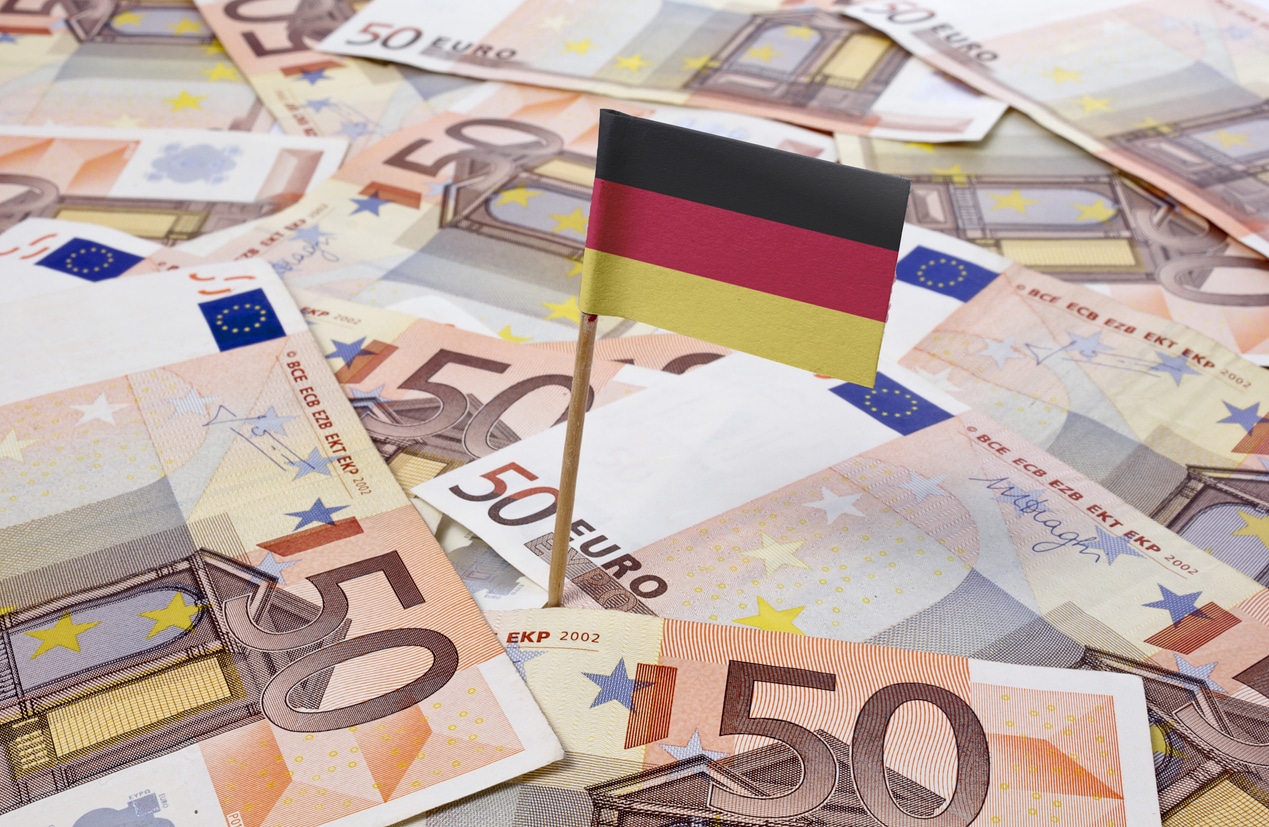
Part-Time Jobs in Germany for Students
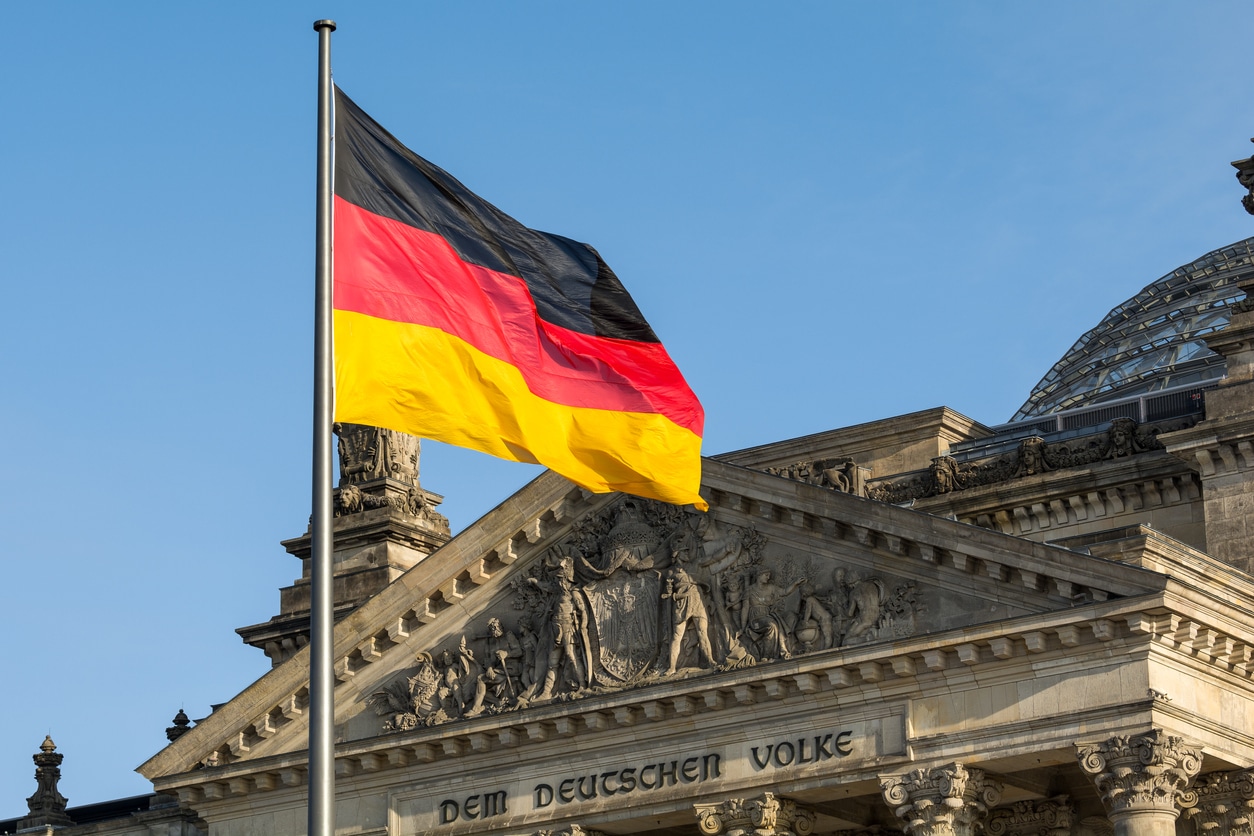
Top 14 Fully Funded Scholarships In Germany For International Students

Free Education In Germany For Indian Students In 2024
Public vs private universities in germany , salary after ms in germany: job opportunities and salaries in 2024.

IMAGES
VIDEO
COMMENTS
In Germany, medical students who undertook a doctoral thesis get an MD (Dr. med.); students in biology, including basic biomedical science, got a PhD (Dr. rer. nat.). Different programs, different degrees. As discussed last week in Next Wave, a very large proportion of medical students in Germany do embark on an MD thesis. Most of these ...
The international MD/PhD program "Molecular Medicine" was founded in 2000. It combines a broad spectrum of research in the fields of immunology, infection biology, oncology and stem cell biology/differentiation, cell biology and genetics. The main aim of the program is to bridge basic sciences with applied clinical aspects in research training and to further the necessary interdisciplinary ...
With the introduction of the PhD, MD/PhD and DMD/PhD programmes, University Medicine Greifswald offers high-achieving graduates of medicine, dentistry, and natural and life sciences the opportunity to conduct a structured doctorate with a focus on research, and thus excellent prospects for their further professional career and the continuation of an academic career, especially in an ...
The international MD/PhD program "Molecular Medicine" was founded in 2000. It combines a broad spectrum of research in the fields of immunology, infection biology, oncology and stem cell biology/differentiation, cell biology and genetics. The main aim of the program is to bridge basic sciences with applied clinical aspects in research training and to further the necessary interdisciplinary ...
The School of Medicine and Health Sciences awards the Doctor of Medicine (Dr. med.) and Medical Doctor - Doctor of Philosophy (MD-Ph.D.) degrees for in-depth, independent scientific achievements in the field of medical sciences in accordance with the Doctoral Degree Regulations dated 12 October 2021 and the First Amendment dated 21 March 2022.. If you have any questions regarding the procedure ...
The Ph.D. is a research and training program, around medical research topics. In particular, it focuses on biomedical experimental, clinical, translational, and health sciences research. The Ph.D. Medical Research is designed for graduates who have completed an undergraduate degree (master's degree, state examination, or similar) in medicine ...
View Programme Information. Find the best PhD programmes in the field of Medicine & Health from top universities in Germany. Check all 65 programmes.
The PhD program in Molecular Medicine aims at an in-depth education in the translation of basic knowledge within molecular biosciences into applications regarding the prevention, diagnostics and therapy of human diseases. The Faculty of Medicine at the University of Göttingen has a long tradition and is further expanding its programs towards ...
Our institute is a major center for fundamental research at the intersection of chemistry, physics, biology and material sciences. We strive to create knowledge with long-term relevance to basic medical science, focusing on molecular and cellular mechanisms and structures. Our institute enjoys worldwide recognition and is headed by scientists ...
The current call for the internal Aachen M.D./Ph.D. program is available to download. The deadline is August 31, 2023. The contact person is Univ.-Prof. Dr. Huber (see Contact). Beginning with the winter semester 2010/2011 at the Medical Faculty of the RWTH Aachen it will be possible to participate in a research-oriented MD / PhD program based ...
PhD Studies & Research. Science and research in Germany are characterised by a distinguished infrastructure, a wide variety of disciplines, well-equipped research facilities and competent staff. Germany offers various career opportunities for international PhD students and researchers. Discover Germany's top-tier PhD programs and research scene ...
The doctoral program takes an interdisciplinary approach to neurosciences linking basic and clinical brain research. The program prepares students for careers at the interface of bench and bedside in the academic neurosciences as well as in the application oriented biomedical industry. PhD in Medical Neurosciences. Complete our PhD program
The University of Bonn's Structured PhD Programs offer a comprehensive and cross-disciplinary curriculum designed to prepare students for a successful career. Programs such as the Bonn International Graduate Schools (BIGS), PhD programs within our Clusters of Excellence, Structured Doctoral Programs by Discipline, and Third-Party Funded Programs include innovative, personalized supervision ...
Fully funded (and no tuition) PhD program in psychiatric, translational research and basic Neuroscience with the option for a residency track for medical doctors. Max Planck Society. We welcome applications starting on August 15, 2024 for a start in fall 2025 (deadline October 31, 2024). The International Max Planck Research School for ...
Ph.D. Programmes at Leibniz University. Increasingly in recent years, structured doctoral programmes such as graduate schools and graduate colleges have become established alongside the classic individual route to a doctorate in Germany. Structured doctoral programmes are characterised by a structured teaching programme and the inclusion of a ...
Doctoral Training in Heidelberg. Heidelberg University offers its PhD candidates a wide range of doctoral programmes with diverse levels of structuring - individual doctoral training, small and medium-sized training groups, or large Graduate Schools. Forms of Doctoral Training. Doctoral Guidelines.
Please inform yourself about your PhD / MD program requirements and process by carefully reading the regulations for the degree of your choice. For certain programs you need to have particular language skills or participate in doctoral student courses or lectures. ... Research in Germany. Information Platform for International Doctoral Students ...
The full-time funding covers a full MD salary and ensures 100% release from clinical duties for three years. After one year, the candidate must submit an interim report. Host labs will receive €15,000 per year (€7,500 per year for part-time grants) for consumables. The next deadline for applications is 15.09.2024.
The graduate schools, research training groups, and doctoral programs at the University of Bremen support doctoral students from Germany and abroad in an interdisciplinary research environment. In them, the young researchers are given the opportunity for independent research and intensive professional exchange, participate in specially designed ...
The Max Planck Institutes for Multidisciplinary Sciences and for Dynamics and Self-Organization have teamed up with the University of Göttingen to establish the scientific programs Genome Science , Molecular Biology, Neurosciences , and Physics of Complex and Biological Systems. The structured education and training offers excellent research ...
International Graduate Program Computational Neurosciences Contact: [email protected]. Freie Universität Berlin Master Cognitive Neuroscience Berlin (MCNB) Contact: [email protected]. ... MSc/PhD/MD-PHD Neurosciences Program Contact: [email protected]. LEIPZIG.
The FMI MD-PhD Program was launched in summer 2016 to provide the opportunity to research-oriented medical students and physicians to carry out cutting-edge biomedical research and do a PhD thesis. Students can benefit from the excellence of the well-established PhD program, the reputation of the Basel Medical School and a privileged ...
As data transforms every sector, earning a degree in Germany opens limitless opportunities. The employment of data scientists is projected to grow 35% from 2022 to 2032.. However, with numerous programs and universities, selecting the ideal data science master's program in Germany can be challenging.